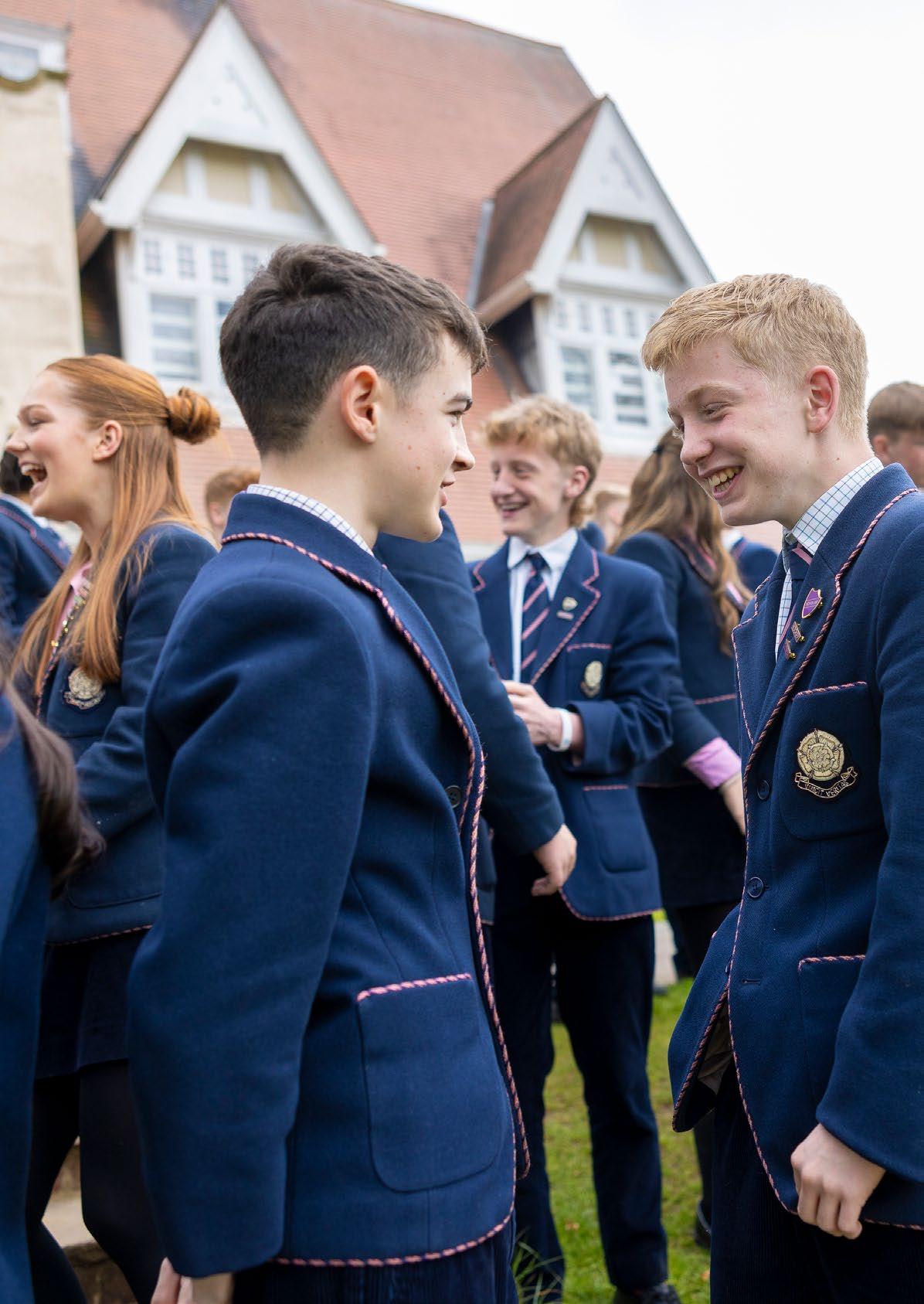
SENIOR
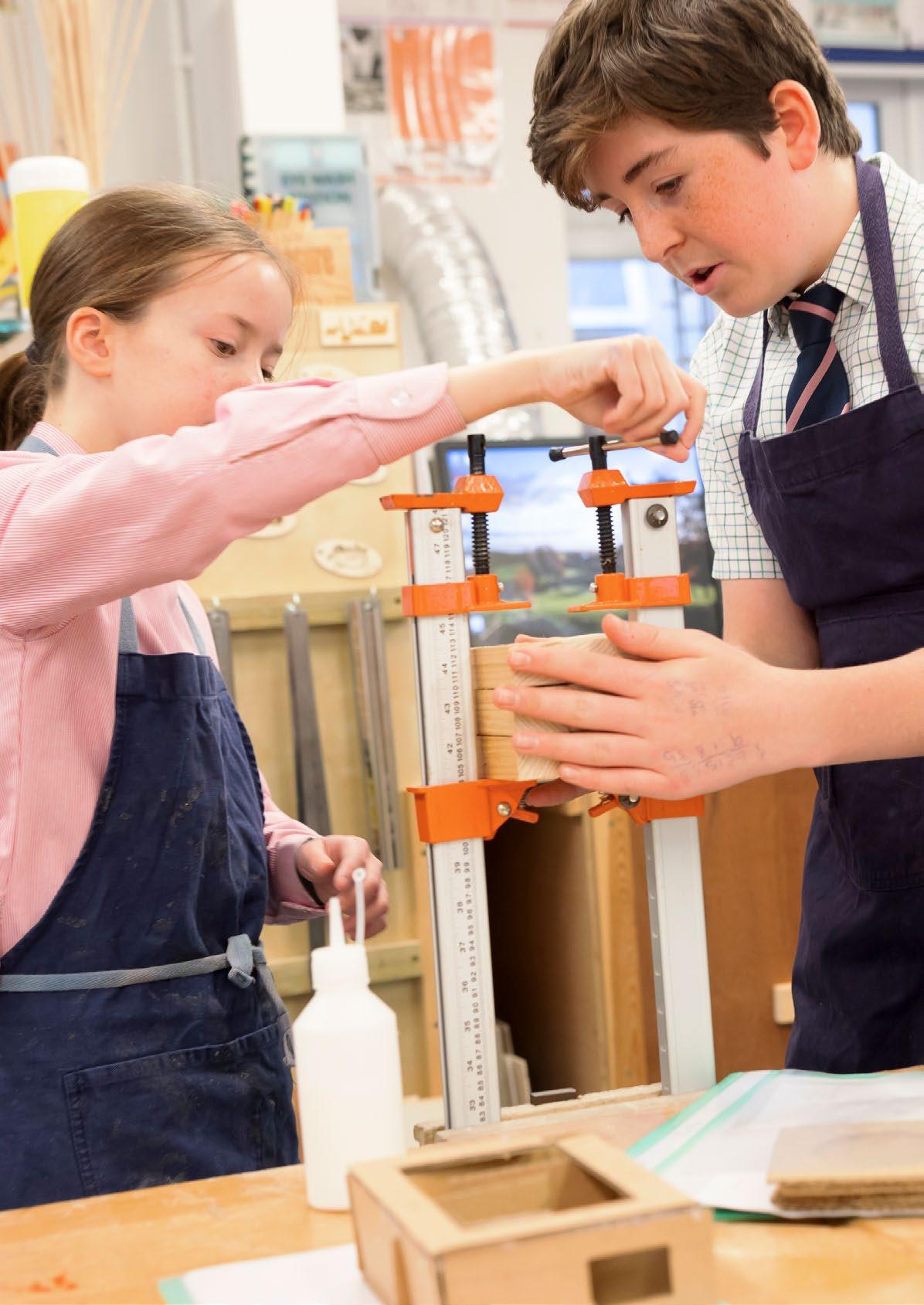
“Cundall encourages children’s strengths to flourish, so that they thrive and excel in those areas”
PARENT OF CUNDALL MANOR PUPIL



“Cundall encourages children’s strengths to flourish, so that they thrive and excel in those areas”
PARENT OF CUNDALL MANOR PUPIL
We are a thriving independent school situated on a magnificent 28-acre site in an idyllic part of North Yorkshire. Cundall pupils enjoy fresh air and plenty of room in which to learn, play and enjoy their childhood.
Cundall embraced co-education in the 1980s. Our staff have significant experience in managing the education of boys and girls through the challenging phases of their adolescence so that they are well prepared and adjusted for life beyond the school gates.
A Cundall education is holistic and characterbased with an equal focus on the academic, active and creative. Our small class sizes enable us to challenge and support each other as we build our best future. Our vision is to be a school where pupils thrive and flourish as they experience the excitement and enjoyment of learning. We guide pupils towards reaching their full potential as passionate and innovative problem solvers, ready to contribute to society. At Cundall Manor, children can be strong and sure of who they are and what they can achieve. They can be ambitious and brave, unafraid of failure. Our children can be enterprising, inventive, and playful while being confident, thoughtful, inquisitive, and supportive of each other. Our extensive grounds, green spaces and woodlands foster exploration and discovery whether it is during Outdoor Education, break times or when we take learning outside of the classroom. Children develop sporting excellence through an extensive timetable as they transition through the school. Alongside daily dedicated Enrichment time, pupils are encouraged to explore their interests, build confidence and are afforded time to develop their strengths.
We are a close-knit community, and we are proud of our family atmosphere. Our pupils feel supported and valued, and we have always been fortunate to have such a dedicated supportive parent body alongside a committed team of teaching staff and governors, who all make Cundall the warm, vibrant, and inclusive school it is.
The school events calendar allows for ample opportunities for parents to feel part of their children’s education. Throughout the year there are parent evenings and formal and informal reports about your child’s progress. Teachers are on hand at all times to meet with parents. A weekly newsletter offers a flavour of the wide range of activities being enjoyed across the school. We take particular pride in the outstanding reputation that Cundall Manor enjoys and our impressive academic results. Our pupils are therefore well prepared for the next stage of their academic and personal development. We encourage all families considering Cundall Manor to come and visit our highly distinctive school and find out for yourself why educating your child the Cundall way is so special.
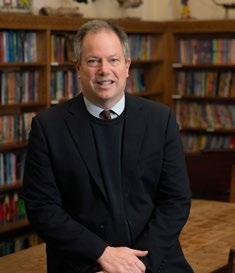
Mr Simon Weale Headmaster
At Cundall Manor School, we believe in providing the perfect environment for your child to thrive. Our comprehensive approach combines academic excellence, pastoral care and a wealth of sporting and creative opportunities within a broad and balanced curriculum. We tailor our teaching methods to meet the individual needs of each pupil, ensuring they are well equipped to excel.
Our Senior School, located in the Quad classrooms, includes Years 7 (Aram), 8 (Swale), 9 (Leckby), 10 (Eldmire) and 11 (Thornton), with subject-specific studios and labs spread across our campus. Small class sizes and dedicated, inspiring teachers ensure that pupils receive the individual attention they need to succeed.
Academic Excellence
We have a long-standing tradition of academic excellence, with pupils consistently achieving outstanding results in public examinations. Structured revision timetables support them throughout their studies and continue right up to their GCSE examinations, complemented by access to Saturday revision sessions.
Pastoral Care
We are committed to providing our pupils with a safe and supportive environment in which to learn and grow. We have a strong pastoral care system, and we work closely with parents to ensure that the needs of each child are met.
Sporting Excellence
We have a strong tradition of sporting excellence, and our pupils regularly compete at county, national and international levels. We offer a wide range of sports, including football, rugby, hockey, netball, cricket, swimming and tennis alongside an expansive enrichment programme.
Creative Opportunities
We understand the significance of nurturing creative expression. Through a diverse range of opportunities in music, drama and art pupils are empowered to explore and cultivate their artistic talents.
Community
We are a close-knit community, and we are proud of our family atmosphere. Our pupils feel supported and valued, and we have always been fortunate to have such a dedicated supportive group of parents alongside a visionary and committed team of governors.
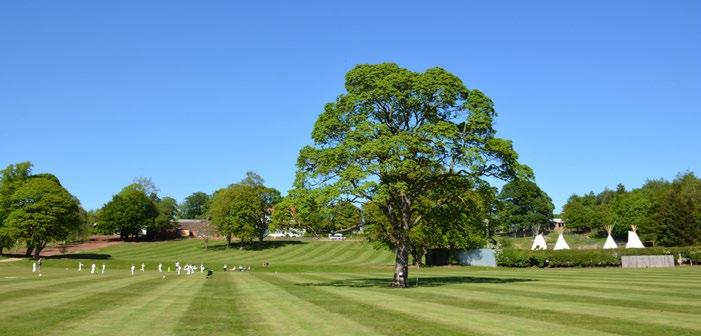
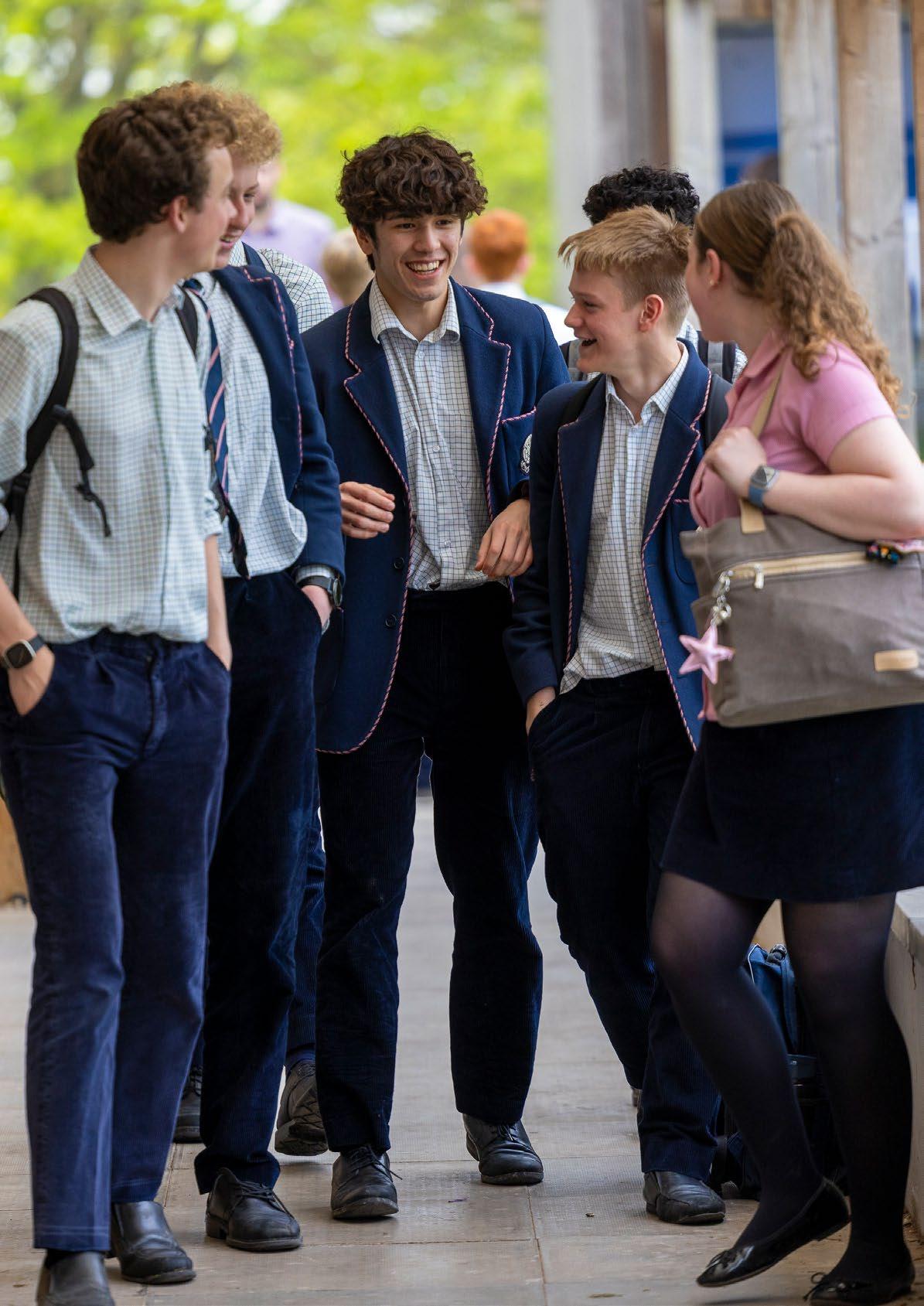
“Pupils’ attitudes to learning are excellent. Their love of learning is palpable”

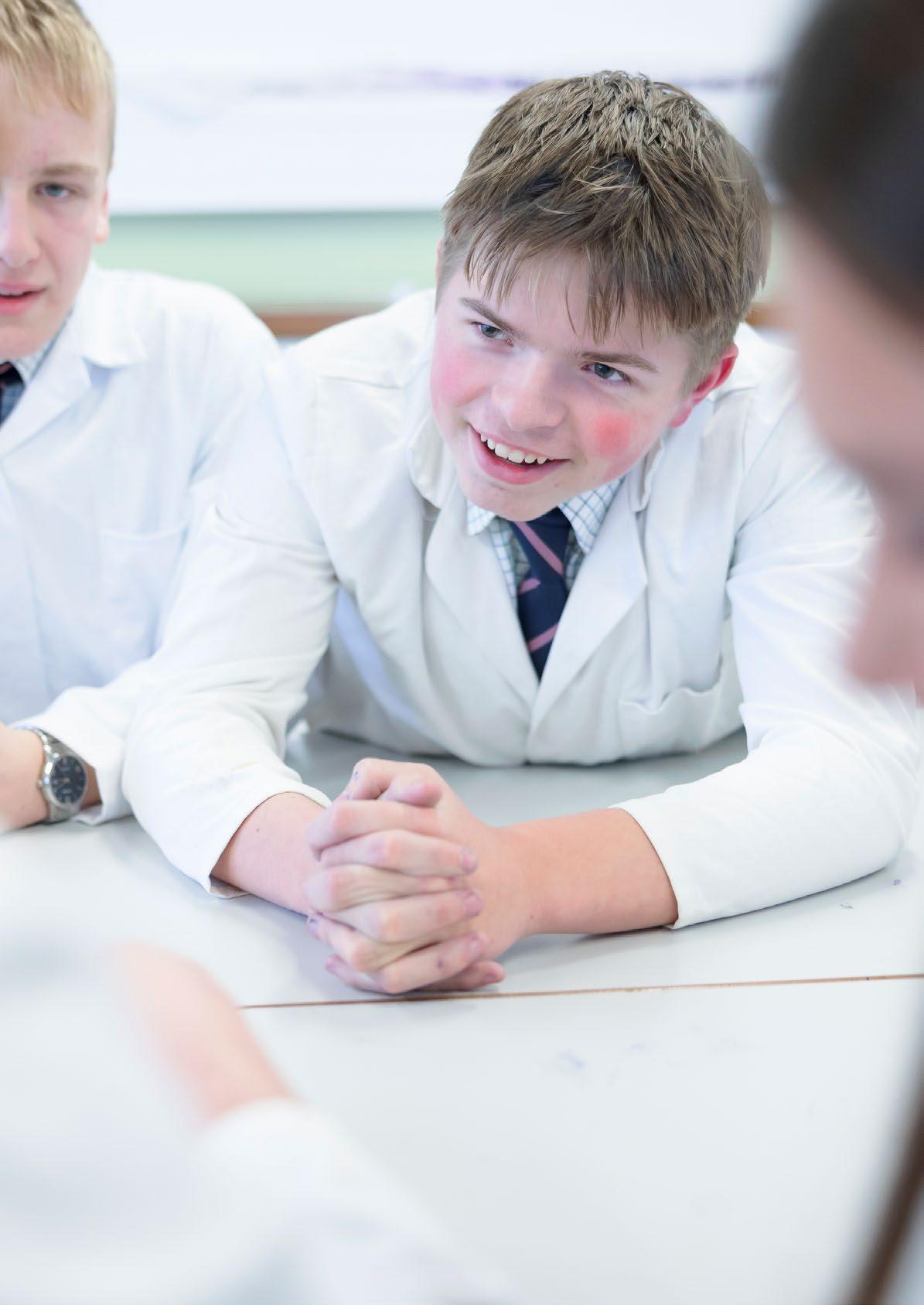
“The teachers know all the children well because class sizes at Cundall are small, so they really have their finger on the pulse of how each child is feeling and whether they need additional support.”
PARENT OF CUNDALL MANOR PUPIL
In Aram, Swale and Leckby (KS3), pupils typically study at least 12 subjects and enjoy a broad, balanced curriculum with a wealth of enriching opportunities for active and personalised learning, both independently and collaboratively. They will further develop their learning skills so that they are confident in tackling the academic rigour of the curriculum whilst emphasising personal development.
Pupils learn the following subjects:
Academic: English, Mathematics, Science
Languages: French and Spanish
Human and Social: History, Geography, Religious Studies
Creative and Performing Arts:: Art, Music, Dance, Drama
Life Skills: Personal Education, Personal, Social, Health, and Economic Education
Physical Education: Individual and Team Sports
Technological: Computing, Design and Technology and Food & Nutrition
Taught by specialist teachers, these subjects are complemented by a stimulating range of extra curricular enrichment activities catering to diverse academic, creative, and sporting interests. Our pastoral care and house systems cultivate a culture of courtesy and kindness, while opportunities for leadership development are woven throughout the curriculum, with the Scholars Programme introduced in Year 7 and Prefects in Year 11.
Smooth transitions are pivotal in ensuring pupils’ well-being and academic success, and at Cundall Manor, we prioritise supporting pupils during key transition years. Starting from Year 3, pupils gradually familiarise themselves with the Senior School environment, visiting the ‘Quad’ for lessons and experiencing a structured timetable in advance. We provide parent information sessions, transition days, and opportunities for pupils to interact with senior school staff, peers, and facilities, fostering a sense of belonging and inclusion, helping them adjust to their new environment, build relationships, and succeed academically and emotionally as they settle into Senior school.
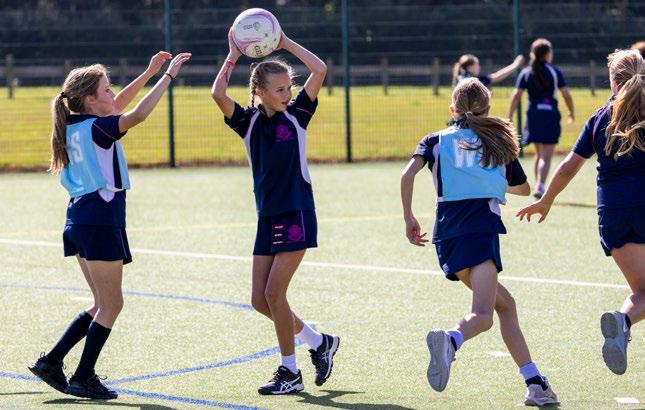
Our comprehensive GCSE program is meticulously designed to equip pupils with the necessary skills and knowledge to achieve their best possible outcomes and realise their full potential.
At Cundall Manor, we prioritise empowering pupils to make informed choices regarding their GCSE options. In addition to core subjects such as Maths, English Language, and English Literature, as well as Separate or Combined Science, pupils typically select four other GCSE options. Alongside traditional Humanities subjects, Cundall offers a diverse range of options including Art, Textiles, Drama, Computer Science, Physical Education and Language options.
GCSE pupils have access to Saturday morning revision sessions on a rolling programme throughout the school year and revision workshops during the Easter holiday. This ensures that our pupils are well supported in the preparation for their exams with over 500 additional hours of revision sessions offered to every child.
At Cundall Manor, we are committed to nurturing the individual talents and aspirations of each pupil, ensuring they are well-prepared for their future endeavours. See further details about our GCSE options at the back of this brochure.
The Learning Support Department oversees support for pupils with SEND, working directly with students and supporting teaching staff to encourage mindful learning and maximise potential. The Head of Learning Support serves as the SENCo, managing access arrangements for exams and a screening program for new students.
Supporting children with additional needs is an essential part of our educational philosophy in that we aim to ensure all children are individually provided for. To do this, we aim to create a positive and supportive environment for all, without exception, in and out of the classroom. We build an ongoing, holistic understanding of our pupils and their needs through regular team meetings, assessment and pupil voice, we ensure all pupils have access to high-quality teaching through our outstanding CPD programme for all staff to recognise the needs of pupils and by utilising our fantastic Teaching Assistants to support in the classroom. To complement the high-quality teaching in the classroom we also provide carefully selected small-group support sessions and one-to-one interventions.
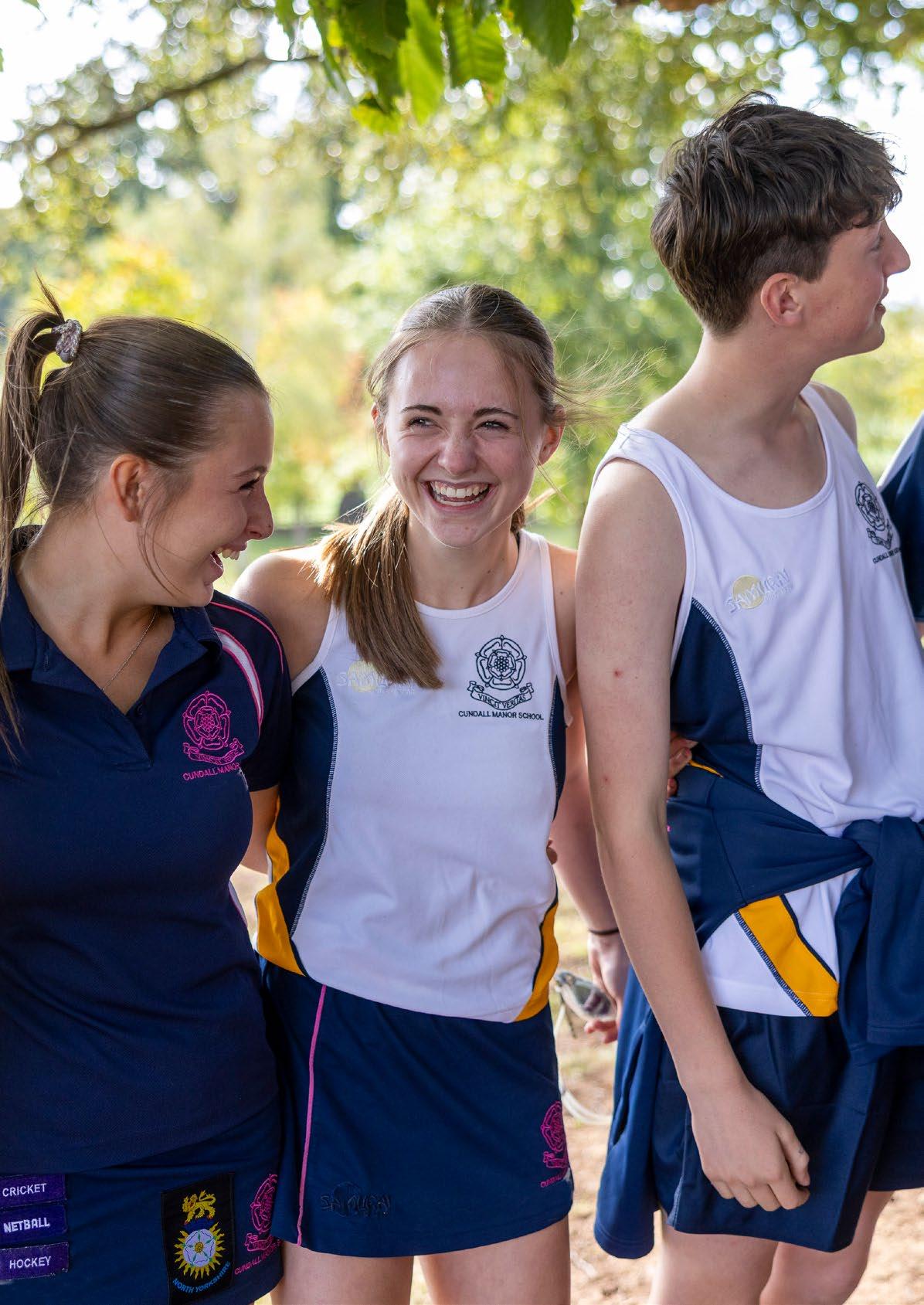
“The school is a real asset to education and I believe that my daughters will leave the school with an excellent academic record plus a desire to explore the world and pursue new experiences.”
PARENT OF CUNDALL MANOR PUPIL
Every child from the age of 2 to 16 benefits from the Cundall Character Curriculum, which sits at the heart of school life. As pupils progress through the school, they are given opportunities to be inventive and enterprising, playful and curious, while learning the value of teamwork and exploration within a supportive community. In doing so, children grow into confident, ambitious and resilient individuals who are encouraged to exceed their own expectations and feel part of something bigger than themselves.
Our pupils develop a healthy mindset, confidence in their abilities and a genuine eagerness to succeed. This innovative Character Curriculum is designed to meet the needs of a rapidly changing world. The World Economic Forum regularly highlights the skills employers seek in future recruits, many of which extend far beyond traditional academic knowledge.
While strong foundations in reading, writing and arithmetic remain essential, research shows that the majority of future success relies on so-called soft skills — including critical thinking, problem-solving, emotional intelligence, creativity, collaboration and sound decision-making. These skills are deliberately nurtured through our cocurricular and enrichment provision. The breadth of opportunities on offer supports academic achievement, enhances employability and equips pupils with the confidence to make informed choices. Our rich enrichment programme allows pupils to discover their interests and passions while developing life skills valued by employers and universities alike.
Pupils regularly take part in exciting day trips and residential experiences, both locally and internationally, including the annual Ski Trip, Cowes Week, the Yorkshire Three Peaks and Ben Nevis challenges, international exchange programmes with European schools, and a Thornton end-of-year trip— just a few examples of the opportunities available.
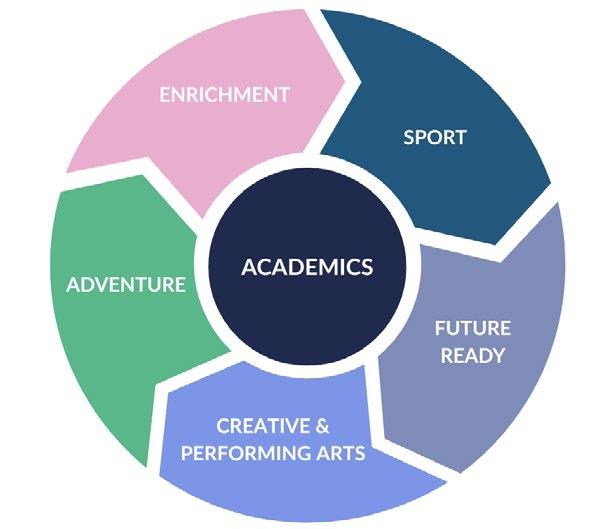
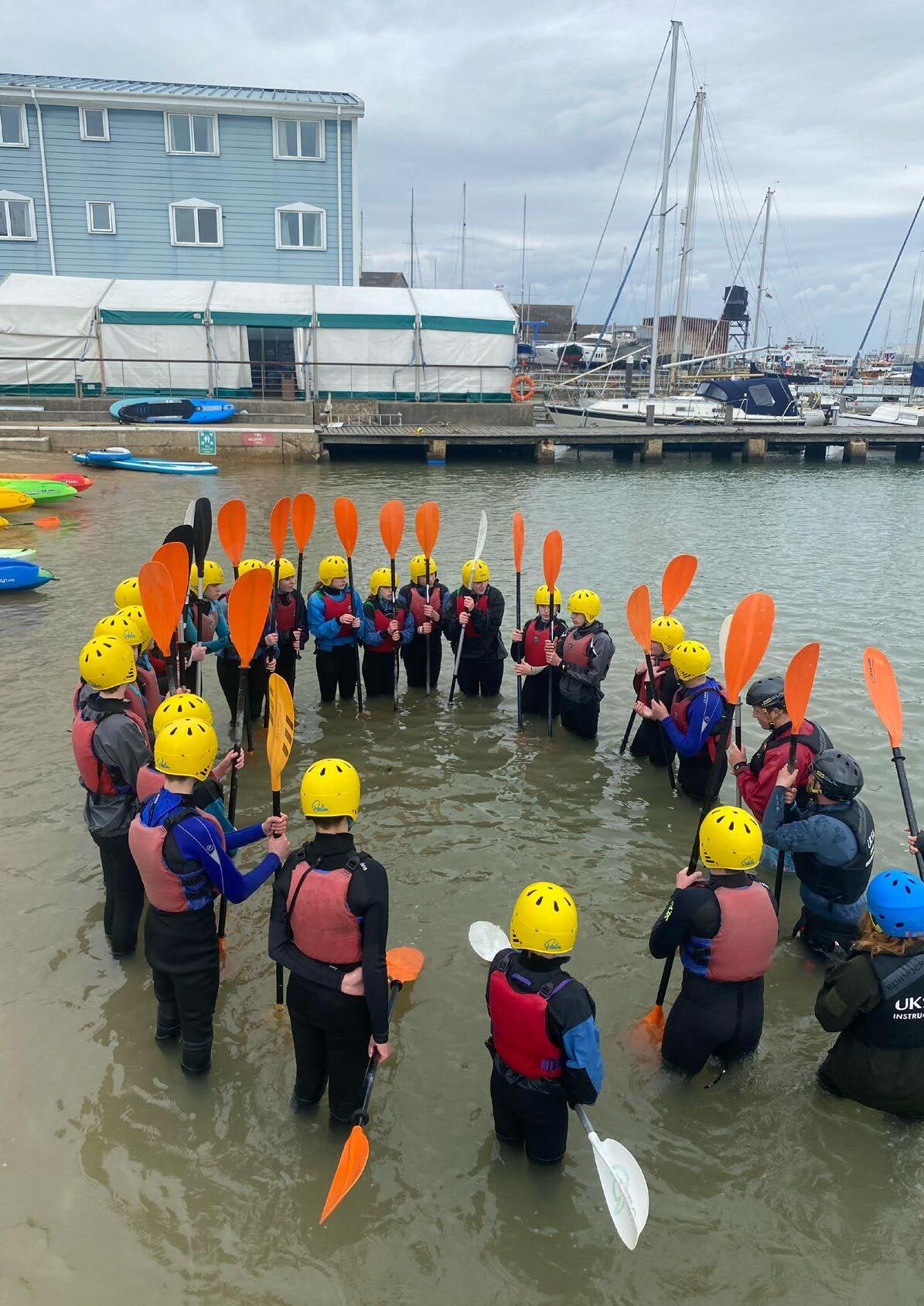
“The extra curricular programme is outstanding. I have never heard of another school that go on so many trips.”
PARENT OF CUNDALL MANOR PUPIL
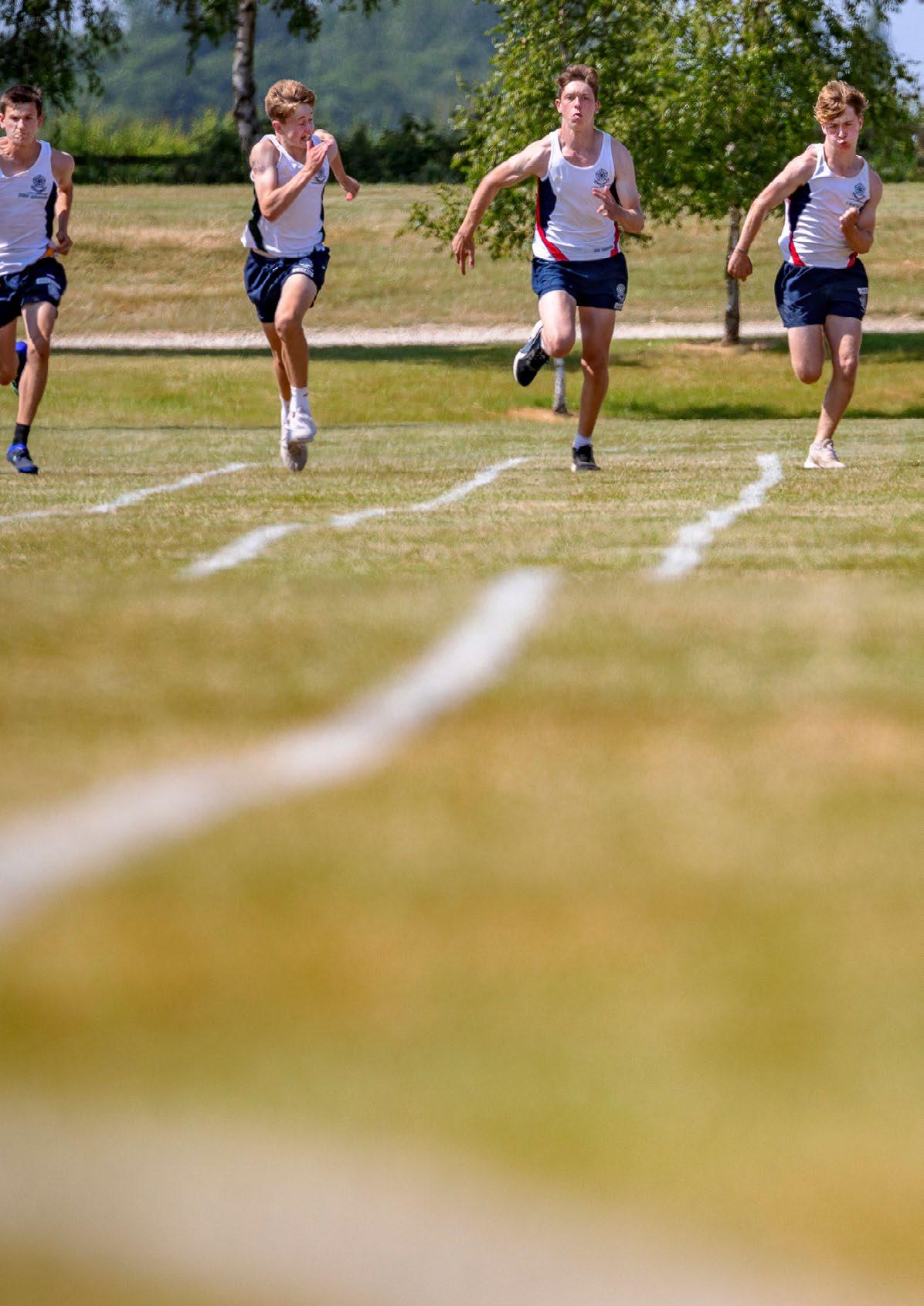
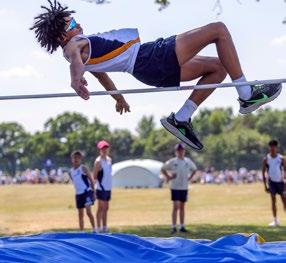
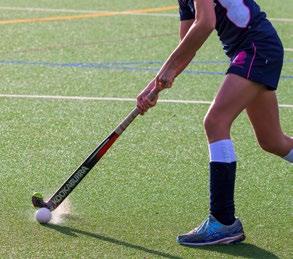
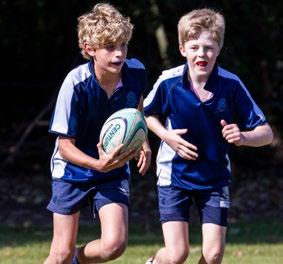
“My youngest has had the opportunity to play in ISA and county level hockey matches, as well as listen to a talk from a former Olympian.”
PARENT OF CUNDALL MANOR PUPIL
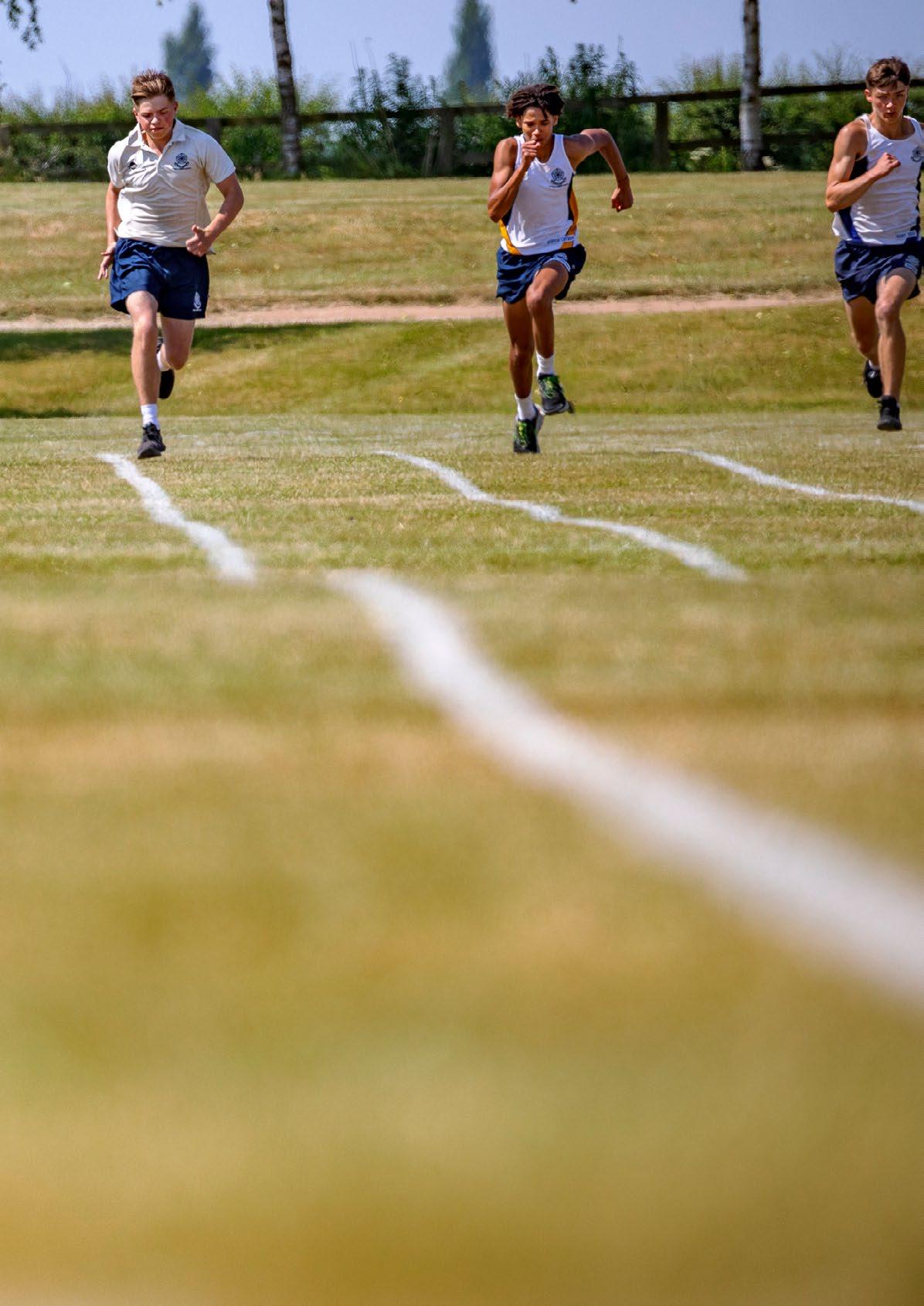
Cundall is renowned for its outstanding sporting provision, where sport is inclusive, challenging and enjoyable. It plays a vital role in developing pupils physically, socially and emotionally, while promoting positive mental wellbeing.
Our active and engaging programme exposes pupils to a broad range of disciplines, including rugby, football, hockey, athletics, cricket, dance, netball, volleyball, badminton, tennis and swimming. Yoga and water polo further enrich our offering through the co-curricular programme.
Sport is embedded within the Character Curriculum, with regular fixtures, tournaments and national championships providing opportunities for pupils to apply their skills in competitive settings. Our busy fixture list spans the North Yorkshire circuit, and many pupils go on to represent the school at district, county and national level.
With teams available for all abilities, every child is encouraged to participate and represent the school. After-school clubs provide additional opportunities to stay active, while teamwork remains central to school life as pupils grow, learn and develop together within a strong year group community.
The Creative and Performing Arts play a significant role in life at Cundall Manor School. Art, Textiles, Drama and Music form an integral part of the curriculum, with all subjects offered at GCSE level.
Every year group takes part in a public performance, from musical theatre productions and plays to collections of sketches, as well as performances at our Carol Service, Speech Days, and Music and Poetry Evenings. These opportunities allow pupils to develop confidence, creativity and a love of performance.
Specialist teachers deliver instrumental, singing and drama lessons and many pupils are invited to participate in ensembles or as soloists at the various events that take place throughout the year. Exams are offered with the ABRSM, LAMDA, Rock School and Music Teachers’ exam boards.
We aim to develop resilience, coping mechanisms, flexibility, and the ability to problemsolve creatively. The sense of achievement and pride that comes from having overcome these obstacles and delivering a successful performance to an appreciative audience is highly rewarding. We are happy to welcome audiences to the various events that take place throughout the year.
Art is taught by a specialist art teacher, alongside a full-time technician. Pupils are encouraged to experiment with different materials and processes including clay, plaster, acrylic paint, pencil, sculpture and textiles. The school regularly invites visiting artists for pupil workshops and arranges trips to art galleries, including overnight trips to London for GCSE pupils.
During the years leading up to GCSEs pupils are equipped with the foundational skills to take art or textiles at GCSE Level. During lessons, they explore artists’ works and diverse cultures, broadening their artistic horizons. All pupils have individual tutorials with their teacher, discussing their work and ideas, and supporting their development of ideas and the progression of their work.
GCSE students can work within the department during break, lunch and after school to support their development of work.
We finish the GCSE year with an art and textiles private view for pupils and parents, to celebrate the end of the course and the artwork creations. We are delighted that many of our GCSE pupils go on to take art or textiles at A level and beyond.
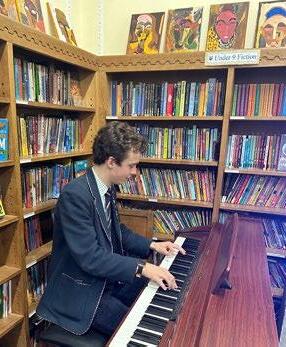
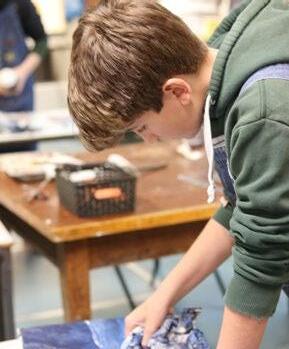
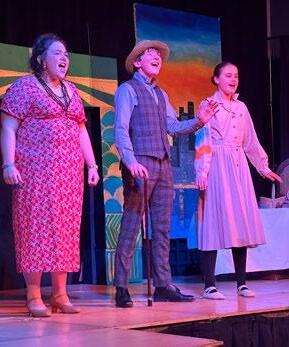
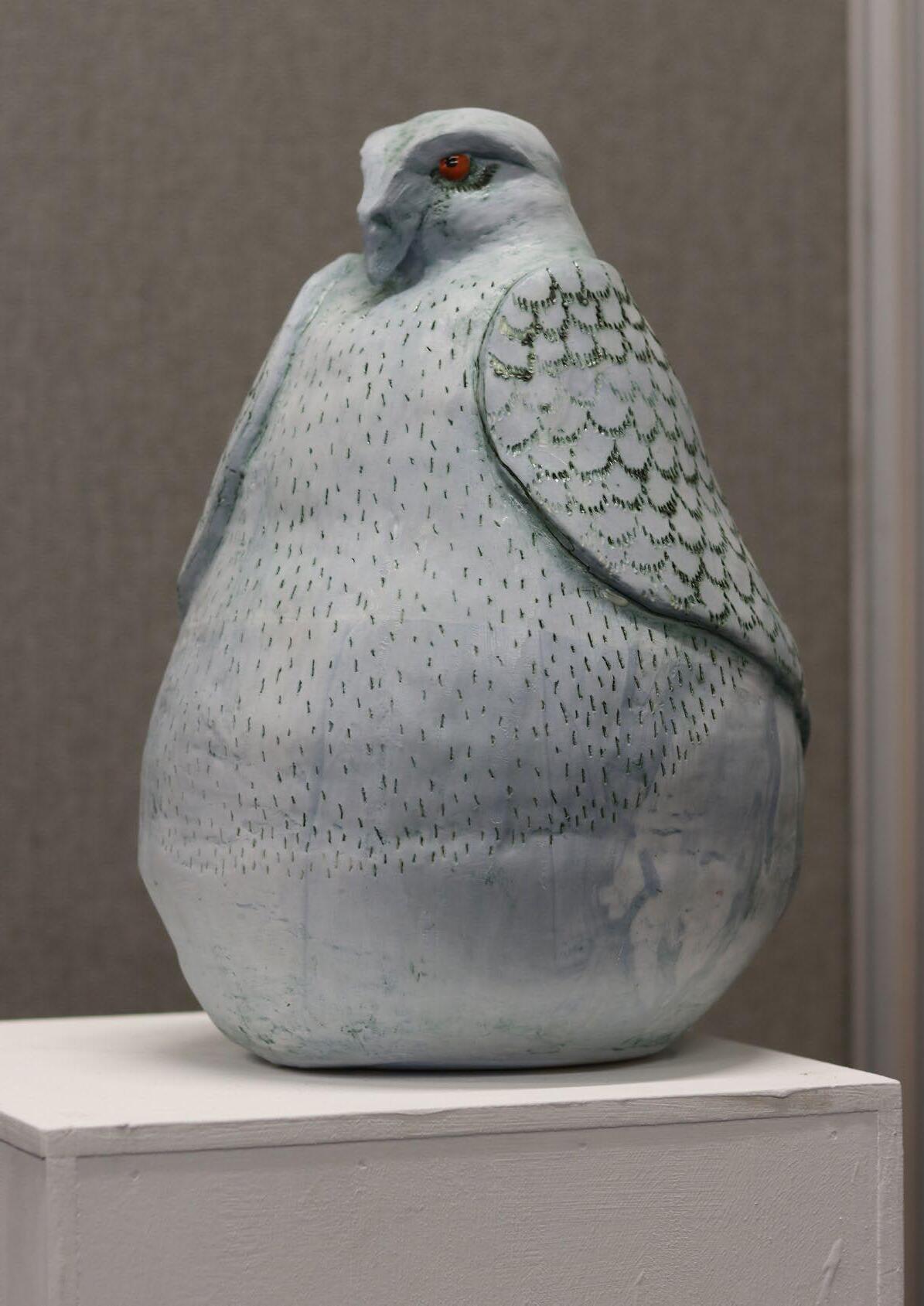
“Cundall encourages children’s strengths to flourish, so that they thrive and excel in those areas”
PARENT
OF CUNDALL MANOR PUPIL
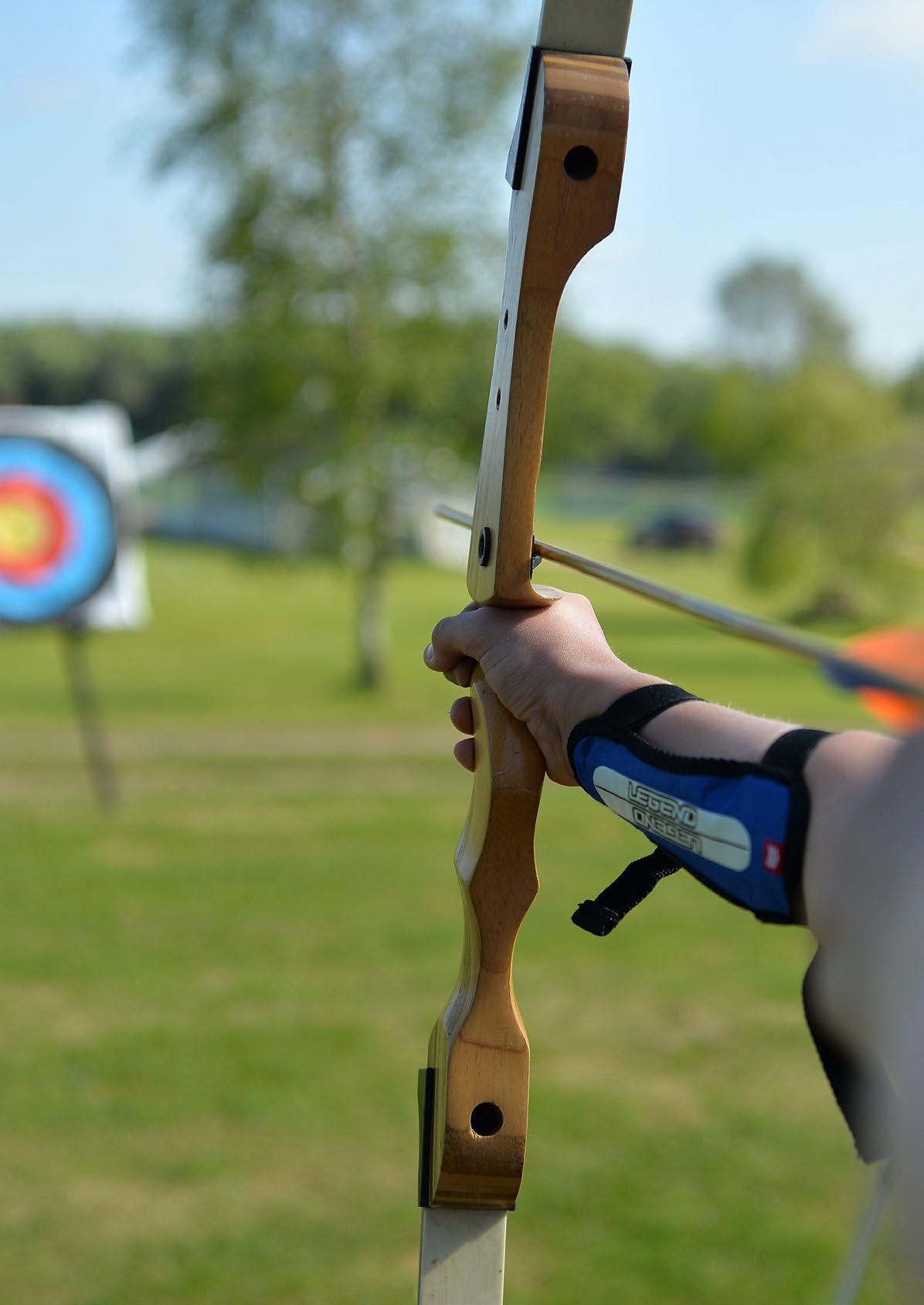
“The emphasis is about giving new things a try, having fun and learning whilst you are doing it.”
PARENT
OF CUNDALL MANOR PUPIL
The ethos of enrichment at Cundall Manor centres on developing skills for life. The programme broadens and deepens the academic and sporting curriculum that every pupil partakes in. Pupils may volunteer in the community, gain further qualifications in an academic or creative field, partake in fundraising exercises or develop their environmental awareness. We believe enrichment promotes employability, and academic attainment and teaches pupils the skills they need to make good, informed life choices.
The list is not exhaustive and changes every year in response to children’s needs and staff skills and interests. There is something for everyone and most importantly, an opportunity for them to track their progress, build confidence and ability, and maintain a permanent record of achievement to showcase when applying for the next stage of their education/career to set them apart from other applicants.
Enrichment, is inclusive of fees and takes part during term time from 4:10pm – 5pm everyday. Enrichment subjects are set in age-appropriate classes and learning environments. All pupils are invited at the beginning of each Term to choose from the options on offer.
Calligraphy
Community Arts
Cookery
Creative Writing
Dress-Making
IT Skills
Jewellery Making
Lego Master Builders
Music Practice
Musical Theatre
Photography
Pottery
Poetry Writing
Production
Warhammer
Dance
Eldmire DofE Silver
Extreme Running
First Aid
Football
Golf Academy
Judo
Horse Riding
Leckby DofE Bronze
Orienteering/Geocaching
RSPB Wild Challenges
Swimming
Sport
Sports Leaders
Tennis
Water Polo
Yoga
Astronomy
Barclays Life Skills/ Money Matters
Book Club
BSL
Classics
Chess and Strategy Games
Croquet
Entrepreneurs
German
Italian
Junior Rotary
Mandarin Chinese
Philosophy 4 Children
Science Club
RHS Gardening
WOHAA
Young Enterprise
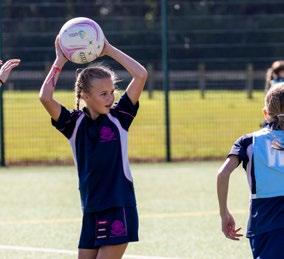
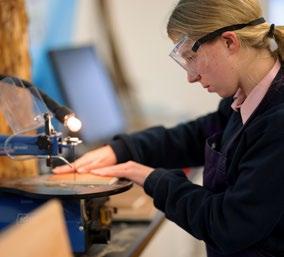
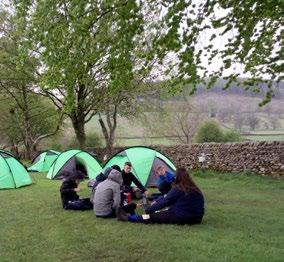
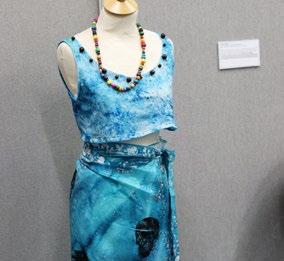
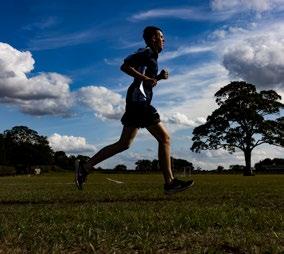
The Duke of Edinburgh Award was started in 1956 by the Duke of Edinburgh. is something that we are extremely proud to offer here at Cundall Manor School. It helps pupils to learn and develop new skills as they progress from Bronze to Silver.
The Bronze Award is compulsory for pupils in Year 9 (Leckby) and they complete this level at the end of the Summer term with their expedition. They can then choose to move on to start their Silver Award in Year 10 (Eldmire) and finish this level in the Michaelmas term of Year 11 (Thornton). We have also had a lot of pupils successfully go on to complete and receive their Gold Award at St James’ Palace after enjoying starting their Duke of Edinburgh journey so successfully here at Cundall Manor.
The Duke of Edinburgh Award is structured into four integral sections:
Volunteering
Pupils give their time to support others and contribute positively to their community. This may include working with younger children, supporting local organisations or charities, helping at community groups, or assisting with sports coaching and leadership activities.
Skills
This section encourages pupils to develop a personal interest or learn something new. Activities can range from creative and practical pursuits such as music, drama, photography or cookery, to technical, outdoor or caring skills. Pupils are supported in setting goals and tracking their progress.
Physical
The physical section promotes a healthy, active lifestyle through regular participation in a chosen sport or physical activity. This could include team sports, individual fitness activities, swimming, dance or outdoor pursuits, helping pupils build commitment, fitness and perseverance.
Expedition
Pupils plan, train for and complete an expedition in a rural environment. Preparation includes navigation, teamwork, first aid and campcraft. Expeditions develop independence, problem-solving and resilience, and provide a rewarding opportunity for pupils to apply their skills in a real-world setting.
In a recent survey by DofE they found that:
“Employers tell us that they look out for DofE Awards when they recruit – deeming extra-curricular activities which develop soft skills to be just as important as academic achievements.”
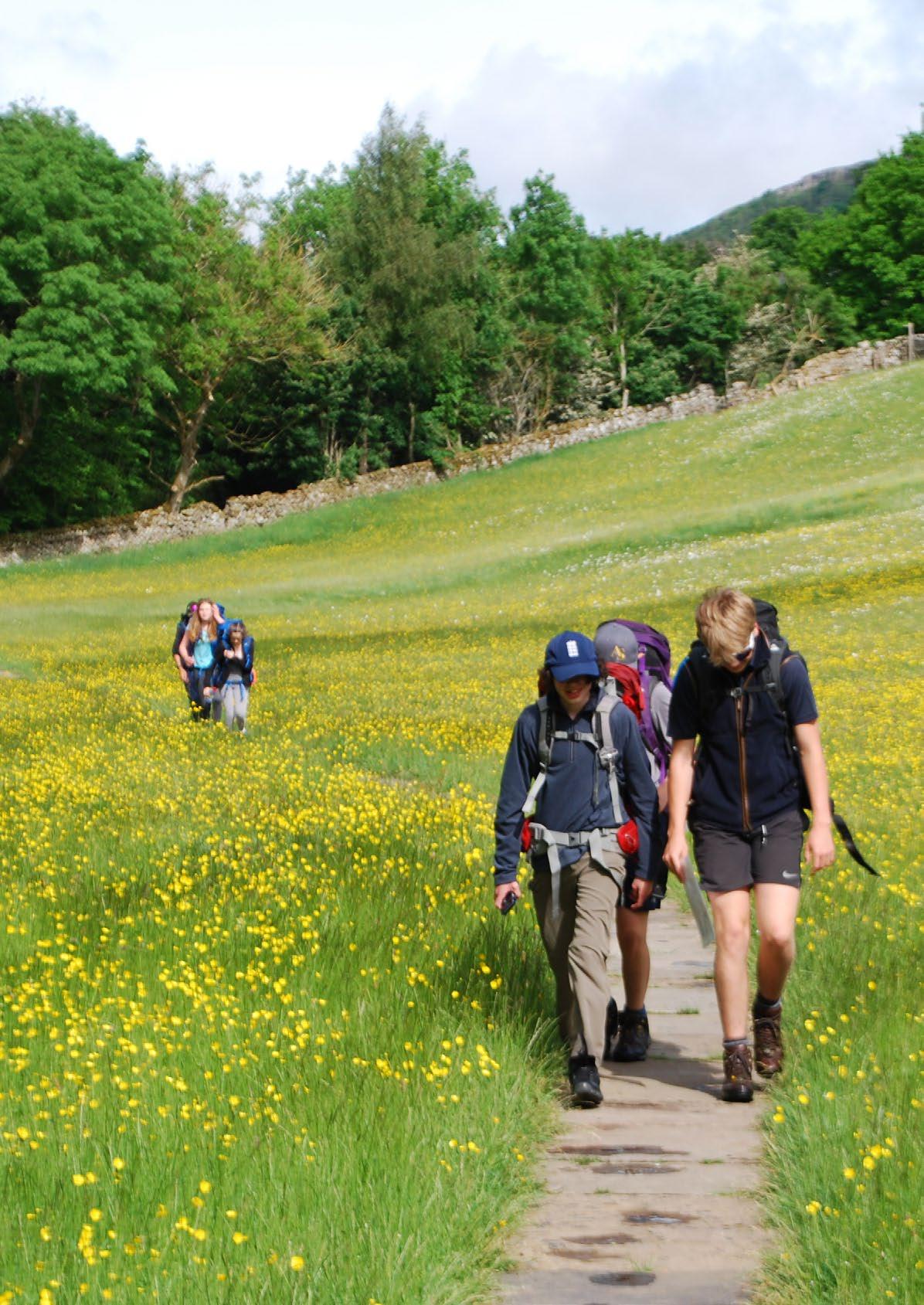
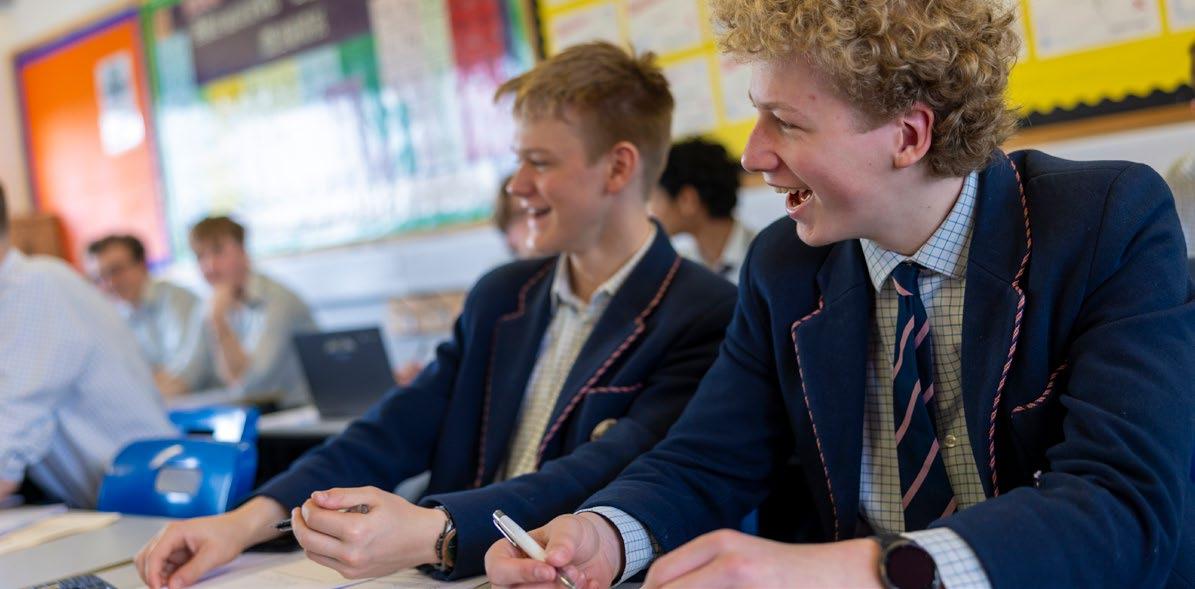
At Cundall Manor, we recognise that every child has unique strengths and abilities, and we are committed to ensuring that each pupil fulfils their full potential. To support their continued growth, it is important that we understand both what pupils do well and where additional support or challenge may be needed.
To achieve this, we assess pupils throughout the school in age-appropriate ways that feel like a natural part of everyday learning. Pupils are benchmarked against national averages through cognitive ability tests in areas such as verbal, non-verbal, spatial and quantitative reasoning. These are delivered through an online suite of engaging, problem-solving tasks that feel enjoyable while providing valuable insight into how pupils learn and their potential at GCSE. Alongside this, teachers use moderated in-class assessments to measure progress against age-related expectations across all subjects from Aram (Year 7) to Thornton (Year 11). Together, these assessment approaches give a clear picture of both current attainment and future potential. The data is then used to identify pupils who would benefit from additional support or greater challenge. While this approach to assessment is not uncommon, our proactive use of data and our ability to track progress consistently from Year 2 to Year 11 is far less typical — and something we are particularly proud of.
Some pupils may need additional support to access the curriculum fully and demonstrate their true potential. While small class sizes allow teachers to provide individual encouragement, our nurturing Learning Support Department offers further specialist support where needed.
Pupils may be identified through assessment, teacher observation, or at the request of parents or pupils themselves. Specialist staff then assess individual learning needs and put appropriate support in place, either through targeted classroom strategies or individual learning support sessions.
We aim to stretch and challenge all pupils according to their ability through extension tasks that deepen understanding and enthusiasm, both in lessons and through prep work. Using a blended approach informed by educational research and expert guidance, we identify pupils who may benefit from further challenge beyond the standard curriculum.
These pupils are encouraged to apply for scholarships, enabling them to develop their strengths further while acting as ambassadors for their specialist areas within the school.
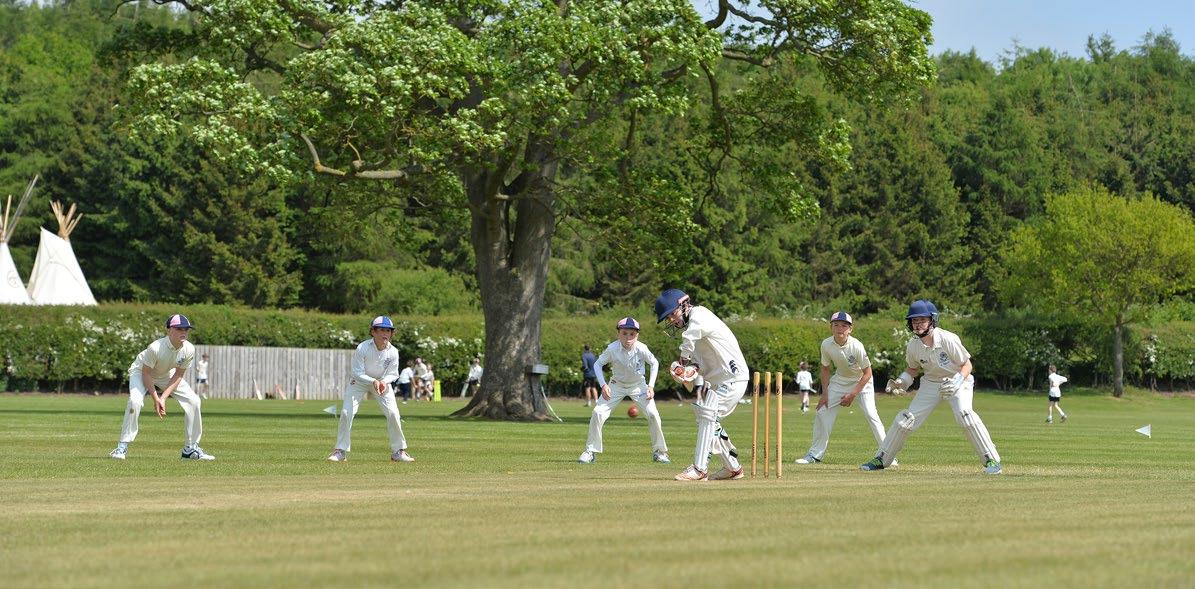
Our aim is to ensure every child has the opportunity to discover their talents and reach their full potential, whatever their strengths or family circumstances.
Each year, scholarships are awarded to pupils with outstanding developed or emerging talent across a range of disciplines, not solely academic. As role models, scholars play an important role in raising aspiration and standards within the wider school community.
Scholarships are available in Academia, Art, Drama, Music and Sport, with the opportunity to be considered for a multi-disciplinary All-Rounder award. Awards are determined through assessment days, typically held in the Spring Term, and are reviewed annually with ongoing support to ensure pupils maximise their opportunities. Confidential, means-tested bursaries are available to enable talented pupils to access a Cundall Manor education that might otherwise be beyond reach, within a community where abilities are nurtured, developed and celebrated.
Please see the Scholarships and Bursary Policy on the website for full details of the application process.
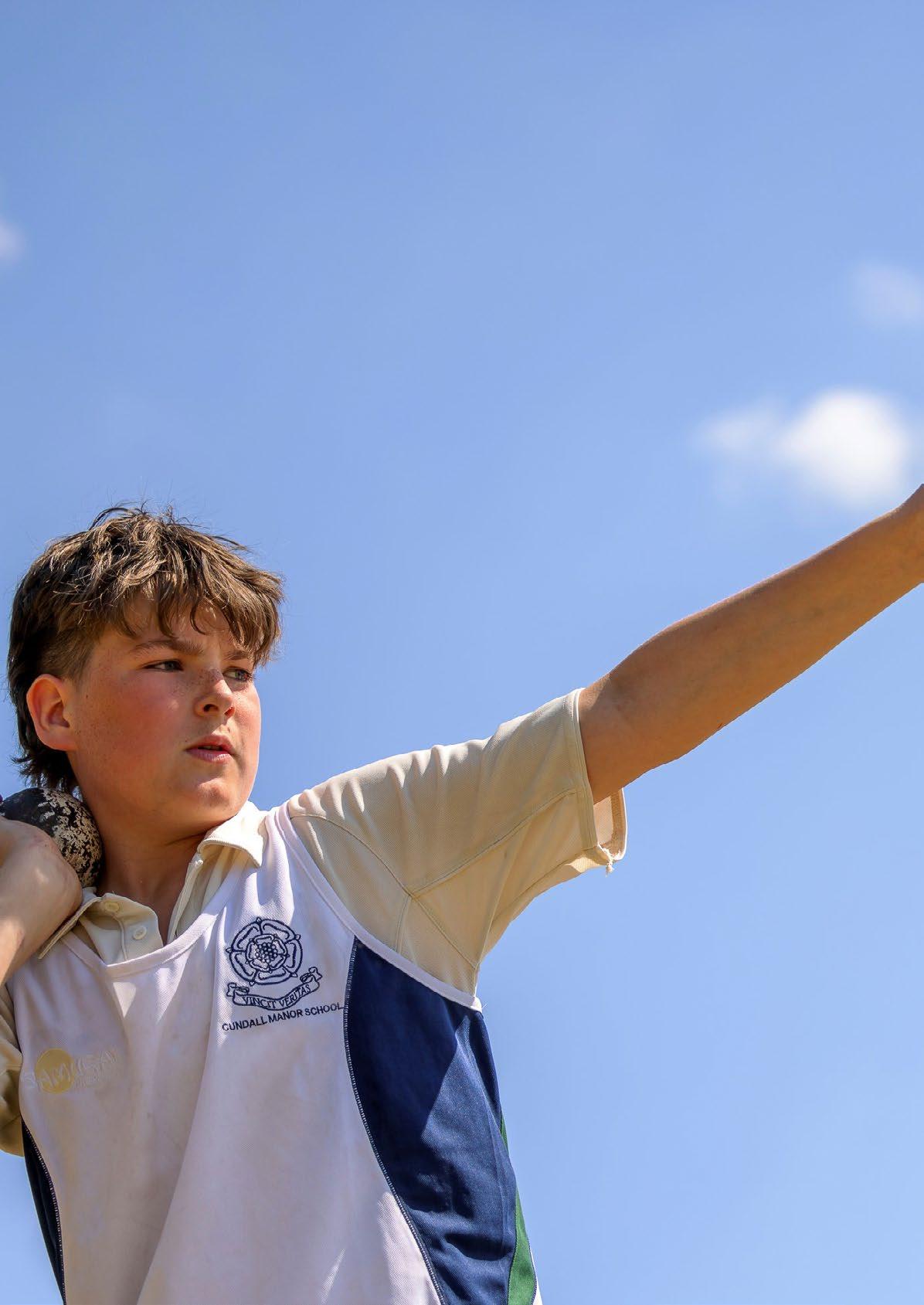
“The extensive grounds enable a broad sporting timetable and the children are active in the fresh air, come rain or shine on a daily basis.”
Children achieve their greatest success when they feel happy and safe in an environment where they are respected and supported. At Cundall Manor, there is a strong sense of community across the school — an extended family where children of all ages mix and support one another.
Through all aspects of school life, pupils are encouraged to develop initiative, selfdiscipline, an enquiring mind and an enthusiasm for self-development and the support of others, all within the social structures of school life.
Each pupil is supported by a comprehensive team at Cundall. Close collaboration with parents enables us to provide effective and consistent support both at school and at home.
Every Cundall pupil has a Form Tutor who oversees academic progress and pastoral care, providing daily guidance, advice and support. The Form Tutor is the first point of contact for pupils and parents. Pupils meet their Form Tutor each morning before school, and each Form Tutor is supported by a Teaching Assistant.
Heads of Phase
Each year group has an allocated Head of Phase who supports both pupils and Form Tutors and oversees the Form Tutor Programme.
Wellbeing Support Teacher and Inclusion Support Team
The school has an experienced Wellbeing Support Teacher who supports pupils if they are finding aspects of school life challenging. Pupils may be referred for sessions, which take place in the Lodge — a welcoming and supportive environment.
Teachers
All teachers are committed to the wellbeing of their pupils. Classrooms foster an atmosphere of mutual respect, trust and care.
Parents
Our pastoral system is founded on a strong partnership between parents and the school.
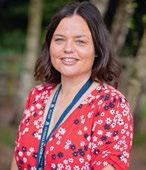

DEPUTY HEAD - PASTORAL & BEHAVIOUR
Clare Stovin
clarestovin@cundallmanor.org.uk
MICHAELMAS TERM
SEPTEMBER
• Parents’ Meetings
• School Photographs
• Whole School Triathlon
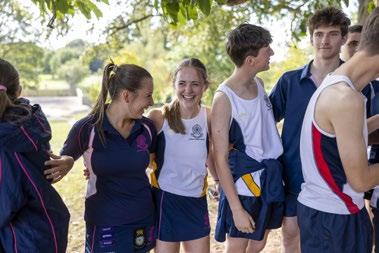
• Pupil Committee Meetings

• Silver DofE Expedition (Thornton)
LEN T T ER M
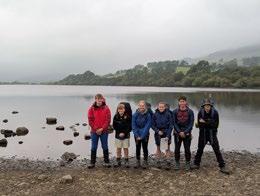
OCTOBER

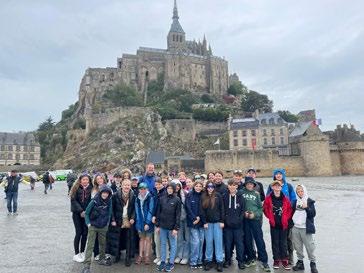
• Geography Field Trip

• Loretto Hockey & Rugby Tours
• ISA North Swimming Galas
• Chateau Trip (Swale)
• Ripon Young Musician of the Year

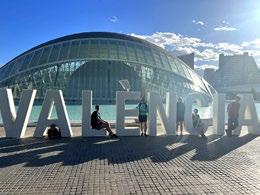
APRIL
• Senior School Production
• Religious Studies Trip - Bradford
• History Trip (Swale)
• Prefect Lunch
• Whole School Chocolate Cake Race

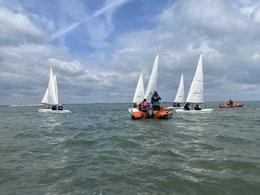
• Spanish Trip to Valencia (Eldmire)
• Cowes Sailing Week
• Silver DofE Expedition (Eldmire)
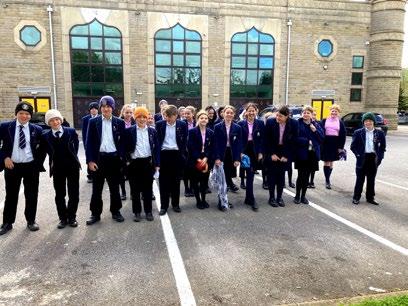
• Science Week orld Book Day
ER T ER M
MAY
• The Annual Go-Kart Race

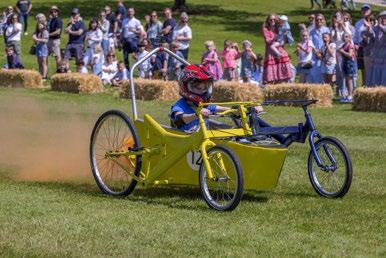
• Pupil Committee Meetings
• Bronze DofE Expedition (Leckby)
• Summer Fair
• Charity Walk
• Thornton Leavers Ball
• Careers Week

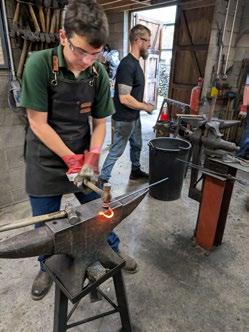

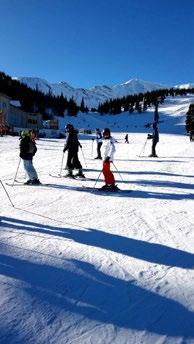
• DT Rotary Technology Tournament
Stratford-Upon - Avon English Trip (Eldmire)
• Staff v Thornton Hockey Match
JUNE
• Yorkshire Sculpture Park
• Sports Day & Grandparents Lunch
• The Cundall Summer Ball
• Work Experience Week
• Edelweiss School Exchange
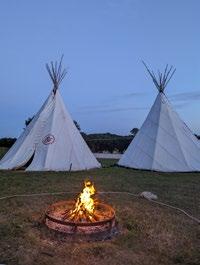

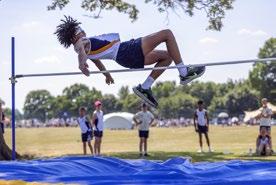



NOVEMBER





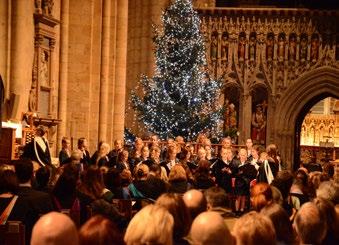
• Design & Technology Blacksmiths Trip (Eldmire)
• Girls ISA Hockey at London, Olympic Park
• Remembrance Service
• Christmas Fair
• Planetarium Workshop
• Art & Textiles Workshop
• Ski Trip
• UK Maths Challenge
• Boys ISA Hockey at London, Olympic Park

JULY
• House Trip

• Transition Events


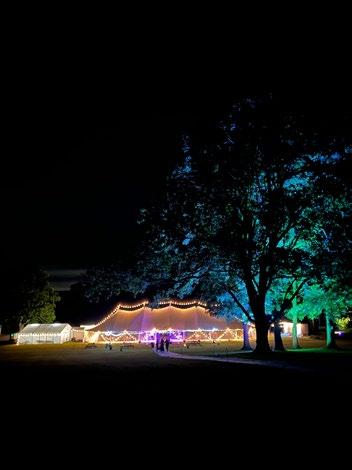
• Prefect Lunch & Team Building
• Pupil Committee Meetings
• House Singing Competition
• Senior School Outing
• Winter Ball
• The Whole School Carol Service at Ripon Cathedral
JANUARY
• Thornton - Mock Exams

• Thornton End of Year Trip
• Speech Day Annual School Outing to Beadnell
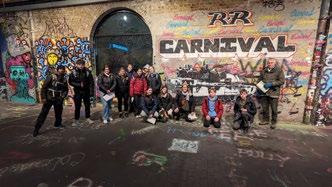

• Whole School Charity Fun Run
• STEMbotics Workshop
• Pupil Committee Meetings
• Internet Safety Workshop
• London Art Trip (Thornton)
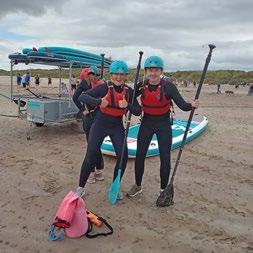

Every pupil belongs to one of our four Houses – Tudors, Saxons, Stuarts and Normans. House points are amassed throughout the academic year and the winning house is rewarded with a day of celebration.
The vertical House system brings together pupils of all ages and provides opportunities for every pupil to understand the importance of friendship, support, respect and care for others within the greater school community.
House meetings take place weekly and allow the pupils to mix with all age groups to carry out a variety of activities. Recent themes have included ‘The History of Your House’ and ‘The Great Outdoors’; alternatively activities may focus on the pastoral theme of the term (such as Integrity, Perseverance, Heroism, Courage and Honesty).
All staff are also assigned to a house and attend the weekly house meetings, allowing them to develop uniquely relaxed and supportive relationships with a broader range of pupils than their classroom teaching may allow.
With children earning house points for good behaviour or exceptional school work, the house system reinforces our ethos of hard work and good manners and allows for a healthy degree of competition within the school. House points encourage intrinsic motivation and research confirms that this generally leads to the most positive outcomes. During the year, several house competitions (in the form of sports tournaments, general knowledge quizzes, talent shows and singing contests) add to the very keen sense of service and support of one’s house.
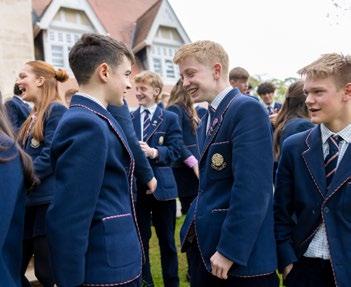
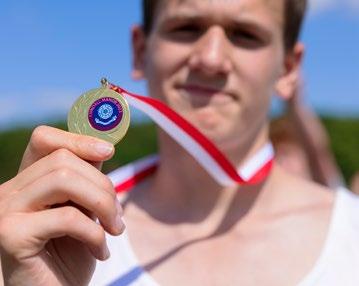
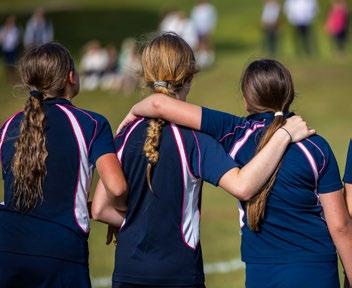
Thornton Prefects play vital pastoral roles in school, serving as role models for younger pupils and gaining valuable leadership experience. Each Prefect is assigned to a form group, assisting them with assembly preparation and guiding them during transitions around the school, particularly during wet breaks and lunchtimes. Prefects have weekly duties like returning lost property and assisting in the dining room during lunch. They also hold drop-in sessions every two weeks, providing younger pupils with a platform to discuss any concerns, such as options choices. Additionally, the Prefect team actively fundraise for chosen charities.
The boarding house is a home-from-home happy environment where children from Year 3 through to Thornton learn to live together as a community and can grow in confidence, knowing that our boarding staff are there to support them.
Flexi places are available; some boarders regularly stay for two or three nights a week, and others are full weekly boarders. International pupils are usually termly boarders who immerse themselves in Cundall Manor to improve their English and experience a different culture.
Pupils have supper, do their prep and then participate in a range of fun activities before tea and bedtime. Taster evenings are available as well as special pop-up Year group boarding socials, to allow our pupils to familiarise themselves with staying over and gain independence. Boarders are treated to a special Friday night Activity Program to places ranging from laser tag, ice skating and cinema excursions.
Our Boarders are supported with their study during the lead-up to their GCSE examinations. This provides a great structure for supporting revision and maximising their potential outcomes.
We are a proud member of the Boarding School Association, visit their website to find out more about boarding across the UK. www.boarding.org.uk
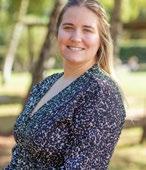
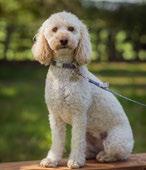
Clarisse Bale boarding@cundallmanor.org.uk
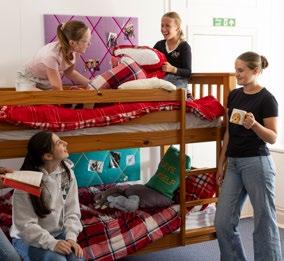
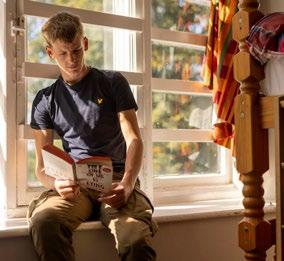
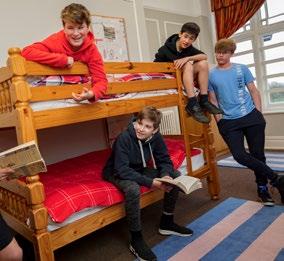
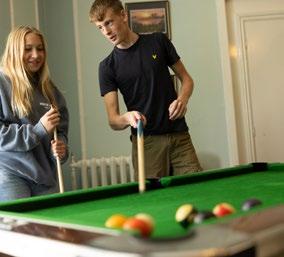

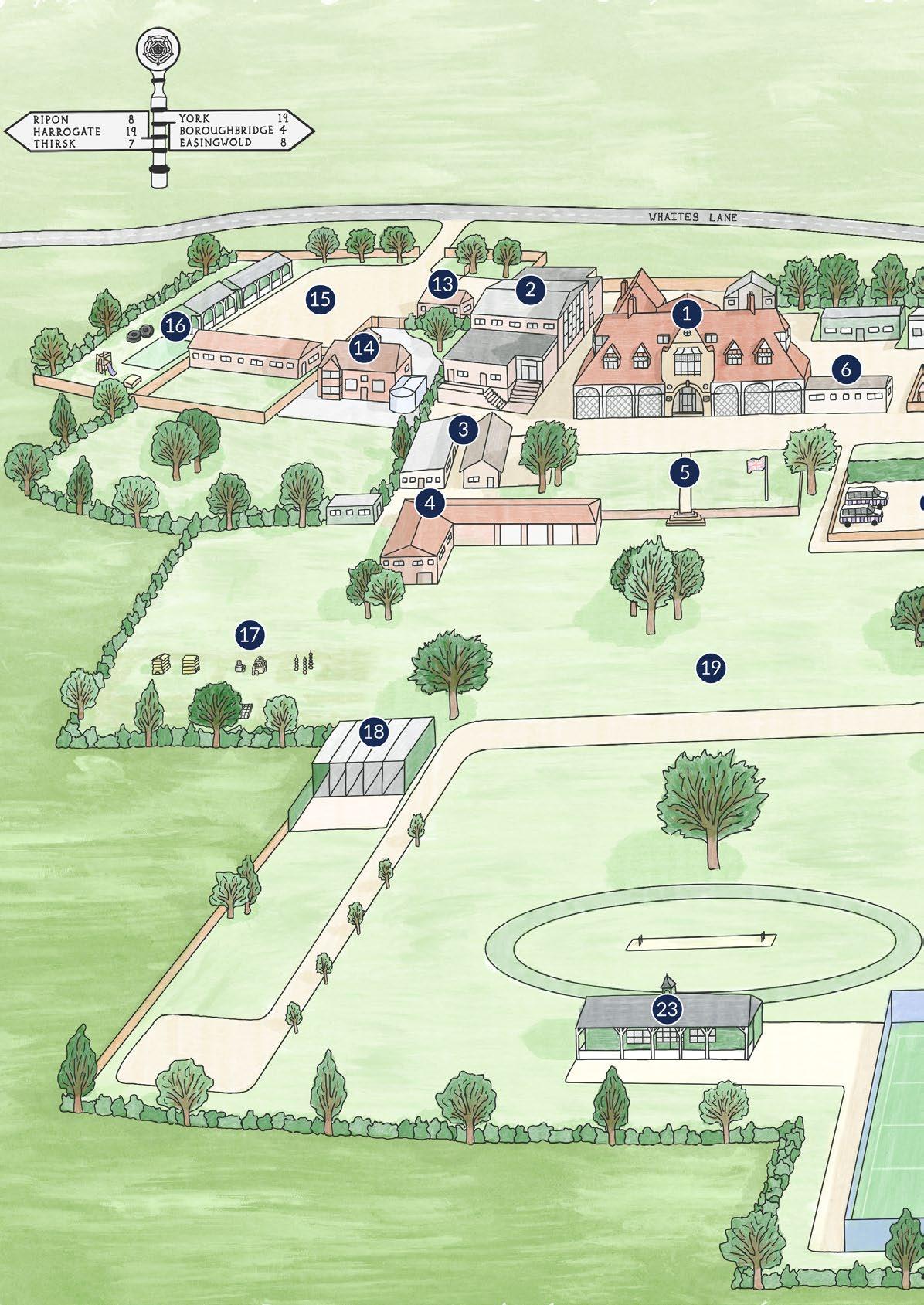
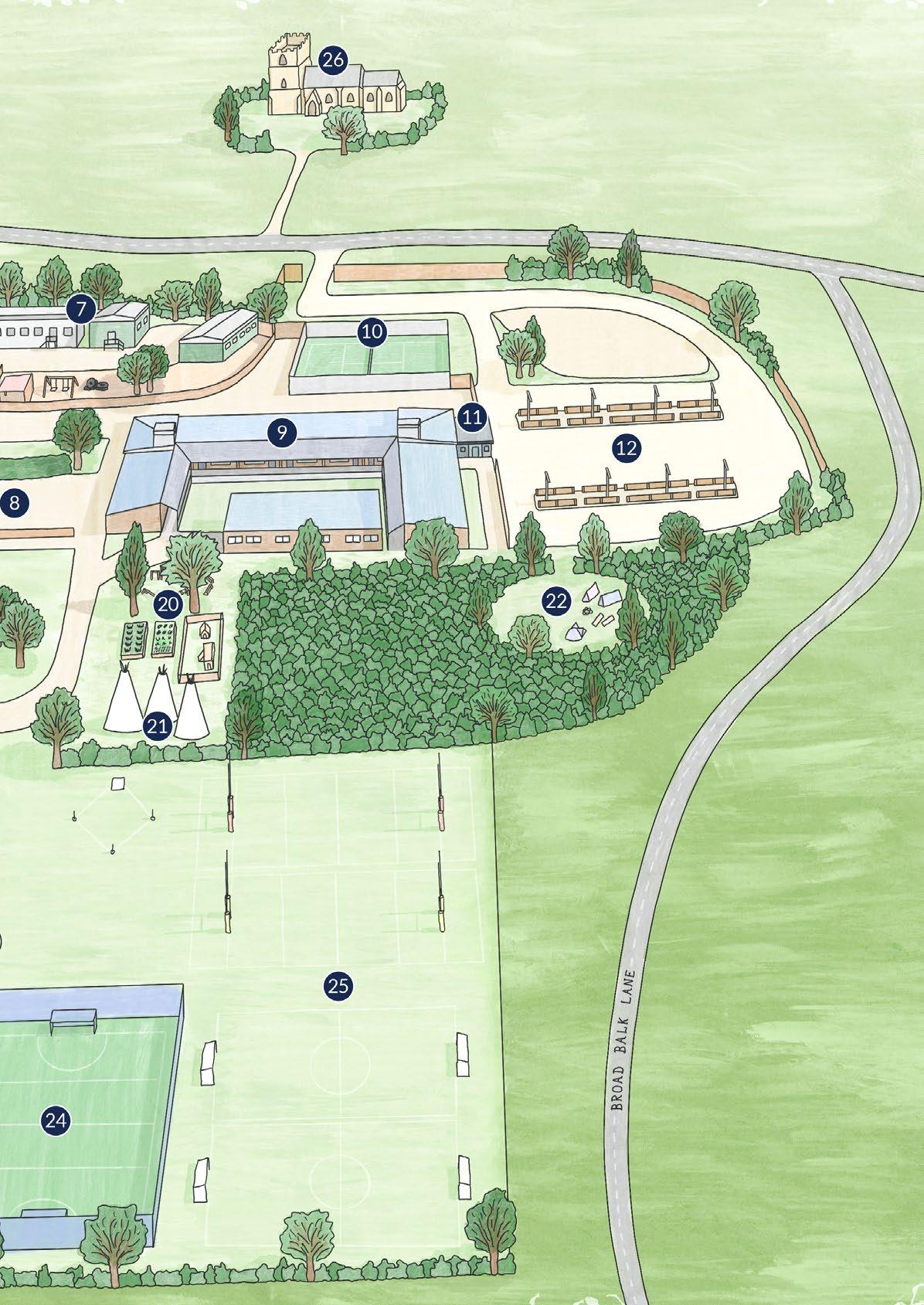
The school has developed a reputation for ensuring that every child feels happy, safe, supported, and celebrated. Within this environment, children engage fully with the educational challenges and risks that maximize learning and achievement.
We assess all our pupils at entry to Cundall Manor with a CAT4 assessment. This is a cognitive ability test. The test measures 4 areas: verbal, non-verbal, quantitative, and spatial awareness. When pupils sit the CAT4 test, the results give us accurate predictions of what can be expected at GCSE in every subject. The data used is statistically robust and extremely reliable. The pupil can take the test in any year group, and each test is modified to reflect the age of the child.
Cundall Manor improves the academic outcomes of each pupil by challenging them with schemes of work taught by dedicated teachers. The balance between academic rigour and co-curricular activities means these subjects are taught to happy, engaged children. Our commitment to small class sizes ensures the teaching is tailored to the child and not the class. Our outstanding valueadded statistic demonstrates that we help all pupils improve their GCSE outcomes. This summer 87% of all GCSEs were awarded at grade 4 and above, significantly surpassing the national average of 67.1%. 83% of pupils achieved 5 or more GCSEs at Grades 9-4. 44% of all GCSEs at Cundall Manor were graded 7 or above (the equivalent of A*- A grades) compared to the national average of 21.8%. The school is particularly proud of a increase in Grade 9s this year, with many notable performances of pupils achieving 8s and 9s in all of their subjects.
87% of all GCSEs were awarded at grade 4 and above, significantly surpassing the national average of 67.1%.
(2025 DATA)
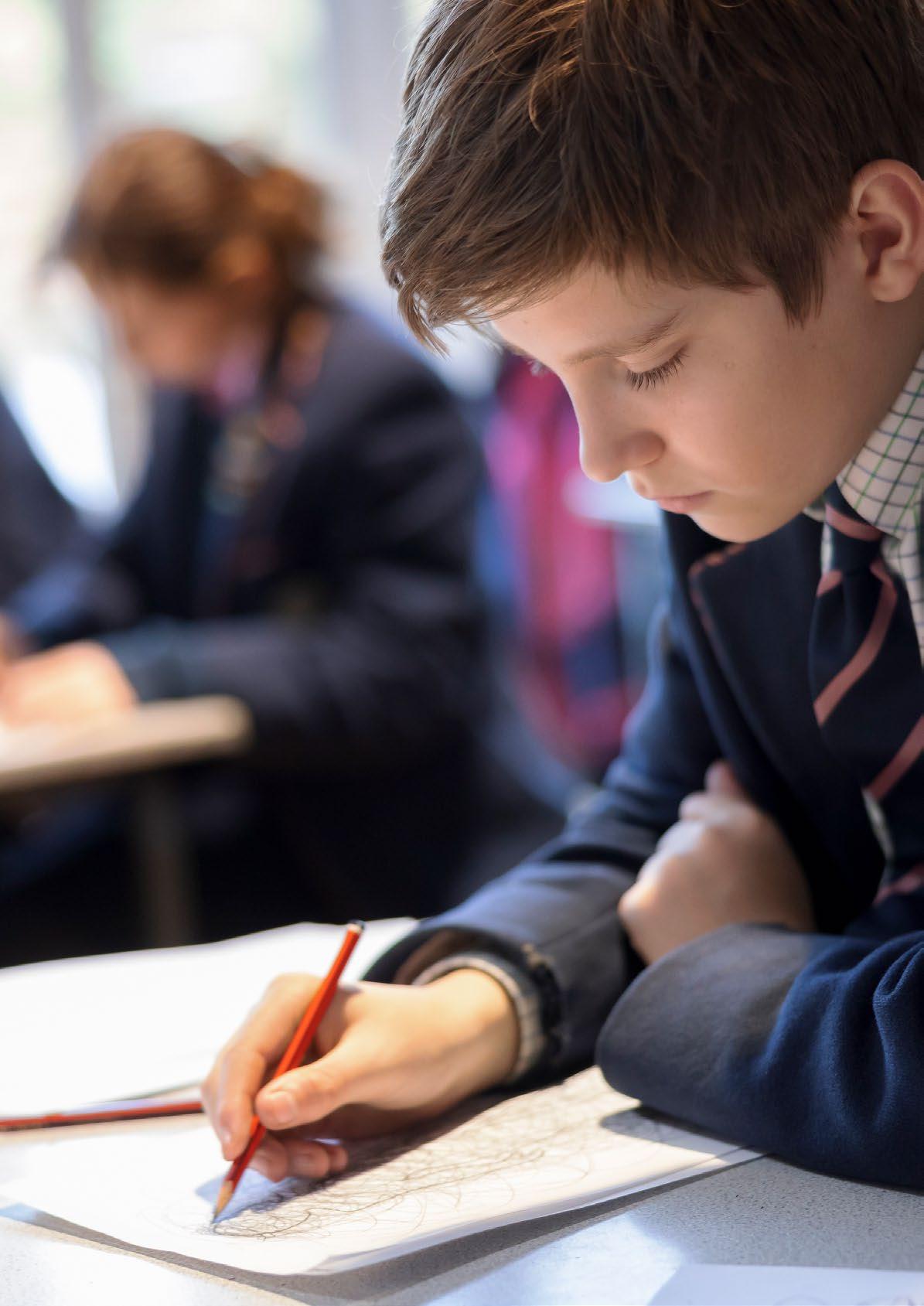
“My son has never been an academic scholar and we have been so impressed by his results, he has just gained entry to one of the top sixth forms in the country, something we could never have dreamed of when he arrived, aged 8”
PARENT OF CUNDALL MANOR PUPIL
Course specification: OCR J170
The GCSE course allows students to actively engage in the process of art, craft and design in order to develop as effective and independent learners and as critical and reflective thinkers with enquiring minds. The course is designed to stimulate imaginative and intuitive capabilities and encourage experimentation with different media and techniques.
Students will have the benefit of trips to UK galleries, museums and places of interest as part of the curriculum. In Year 10 there is an overseas trip, for example to Barcelona, Paris or Venice. In Year 11 the students visit London to do the primary research for component two, the set task.
How will I be assessed?
There are two mandatory units of work:
Portfolio – a portfolio of coursework produced over 15 -18 weeks and developed from a specific starting point. This body of work forms 60% of the total marks and should show exploration, research and demonstrate the use of a range of techniques and skills.
Externally Set task – which comprises 6-8 weeks of preparation and a 10-hour exam and forms 40% of the total marks. Students select one question from an earlyrelease exam paper to which they produce a personal response.
Where will it lead to?
The study of art and design can help you develop transferable skills that you can take to any career or job. It will help your research skills, the ability to work independently and the aptitude to share ideas visually and verbally.
Course specification: AQA 8132
Businesses are part of our everyday lives, providing us with the products we need, communicating relentlessly with us through advertising, providing employment and inventing new products and services that transform how we live. This course focuses on what businesses are and how they organise themselves to achieve their objectives. The businesses studied range from small enterprises to large multinationals and consider the issues in a local, national and international context.
There are six units:
1. Business in the real world
2. Influences on business
3. Business operations
4. Human Resources
5. Marketing
6. Finance
How will I be assessed?
Linear course - written exam: 100%
Students are assessed by sitting two papers at the end of the course. Papers have equal weighting (50% each)
Where will it lead to?
You could go on to study Business A Level or BTec and a wide variety of University Business degrees. You will develop transferable skills such as the ability to analyse and evaluate quantitative and qualitative information, which can be used in a wide variety of professions, including marketing, sales, finance, accounting, human resources and operational logistics, as well as for future entrepreneurs.
Course specification: OCR J277
A high-quality computing education equips pupils to use computational thinking and creativity to understand and change the world. Computing has deep links with Mathematics, Science, and Design and Technology, and provides insights into both natural and artificial systems. The core of computing is computer science, in which pupils are taught the principles of information and computation, how digital systems work, and how to put this knowledge to use through programming.
How will I be assessed?
Paper 1 – Computer Systems Theory (50%)
• System Architecture
• Memory & Storage
- Computer networks, connections & protocols
• Network securities
• System software
- Ethical, legal, cultural & environmental of digital technology
Paper 2 – Computational Thinking, Algorithms and Programming Theory (50%)
• Algorithms
- Programming Fundamentals
- Producing robust programs
• Boolean logic
- Programming languages & integrated Development Environments
Practical Programming (Non-Examined)
All pupils are given the opportunity to undertake a programming task, either to a specification or to solve a problem (or problems), during their course of study. Students may draw on some of the content in both components when engaged in Practical Programming.
Where will it lead to?
Pupils analyse problems in computational terms and devise creative solutions by designing, writing, testing and evaluating programs. Looking ahead, jobs related to the subject could include: Games Development, Managers of IT and Communications Services, Business Analysts, IT Consultants and Systems Developers.
Course specification: 1DT0/1F
The course offers many creative opportunities. Pupils gain knowledge and understanding of materials and production methods along with developing their technical drawing and designing skills. Throughout Year 10, pupils complete a series of skill-based projects which build up their confidence and experience in the workshop. Year 11 pupils then choose their major project (NEA) which counts as 50% of their GCSE. Students work with a range of materials- focusing on timber.
How will I be assessed?
Written exam: (50%)
Non examination assessment (NEA): (50%)
There are four parts to the non-exam assessment:
1 – Investigate: This includes investigation of needs and research, and a product specification
2 – Design: This includes producing different design ideas, review of initial ideas, development of design ideas into a chosen design, communication of design ideas and review of the chosen design
3 – Make: This includes manufacture, and quality and accuracy.
4 – Evaluate: This includes testing and evaluation.
Where will it lead to?
This course complements other options where the is a lot of content crossover including Maths and Physics. It is also a good choice for pupils who enjoy creative and practical subjects like Art, I-Media, ICT and Food Technology.
There are many college/university and career pathways that lead to a DT qualification. GCSE Product Design gives students a sound knowledge and understanding of materials and manufacturing skills and provides a firm foundation for further study such as A-level Product Design. Continue to careers in Engineering, Product Design, Architecture, Vehicle Design, Gaming design, Fashion and many more.
Course specification: OCR J316
This exciting GCSE in Drama gives students the opportunity to explore the subject from a range of perspectives by devising their own, original work; bringing to life the work of a playwright; as theatre reviewers, developing their own thoughts on what makes Drama and Theatre successful; and as creative artists building and bringing a character to life through exploration and rehearsal.
How will I be assessed?
Non examination assessment (60%)
Component 1 & 2 : Devising Drama (Practical)
Students will create a devised performance in groups. They will be able to select a starting point from a range of stimuli given to them by the teacher. Their final piece will be performed to an invited audience.
Component 3: Presenting & Performing Texts
Students will study a text chosen by the teacher and perform short extracts of the piece to an invited audience.
Examination assessment (40%)
Performance & Response
The examination component will be assessed at the end of the qualification and will be 1 hour 30 minutes in length. Students will have to complete two compulsory sections. One section on a play text and one section on a live performance that they will have seen and studied during the course.
Where will it lead to?
After you have completed GCSE Drama you can go on to higher levels of study these include:
AS/A Level Drama and Theatre Studies, AS/A Level Performing Arts, BTEC National Performing Arts (Acting) as well as courses that specialise in technical theatre, theatre design and Arts Management.
Course specification: AQA 8700
This course is compulsory. Students will use higherorder thinking skills in order to read, compare, analyse and evaluate a range of high-quality, challenging texts (both fiction and non-fiction).
How will I be assessed?
The course is assessed by two unseen examinations at the end of Year 11.
Unit 1 - Explorations in Creative Reading and Writing (50 %)
This unit is assessed by an examination of one hour and fifteen minutes. In Part A students have to respond to a piece of unseen fiction. They will be asked to identify arguments and interpret information. They will also have to evaluate ideas and analyse the impact of the writer’s use of language and structure. In Part B students have to produce a piece of creative writing in response to a stimulus; marks are given for technical accuracy as well as content and organisation.
Unit 2 – Writers’ Viewpoints and Perspectives (50%)
This unit is assessed by an examination of one hour and forty-five minutes. In Part A students are given two unseen nonfiction texts to read. They are then asked to identify ideas and to write a summary. They are also required to compare the use of language and structure in the two texts. In Part B they are asked to present a written viewpoint, selecting language, tone and style in a way that enables them to communicate clearly and effectively and deploys Standard English well. Correct use of grammar, punctuation and spelling make up a significant percentage of the marks awarded for this section.
Unit 3 - Speaking and Listening
Students are required to give a presentation for this unit. They are awarded a certificate with a separate grading but this mark does not count towards their overall grade for GCSE Language.
Where will it lead to?
GCSE English and English Literature are necessary if students wish to study either subject at A Level. However, it should be noted that currently A Level English Language does not feature on the list of ‘prestige’ A Levels preferred by top universities, whereas A Level English Literature does. An English degree may be useful for anyone wishing to pursue a career in education, the media, the law or PR.
Course specification: AQA 8702
Students who do well in this subject tend to enjoy reading and are perceptive with regard to writers’ ideas. There is a large element of analysing aspects of writers’ style, and students are expected to be able to evaluate the historical, social and cultural contexts of a text. The course requires students to write long essay responses; therefore, a fluent and precise writing style is helpful. Students wishing to proceed to ‘A’ level English Literature will need to have studied the subject at GCSE.
How will I be assessed?
The course is assessed by two closed book examinations at the end of Year 11.
Unit 1 - Shakespeare and the 19th Century Novel (40%)
This unit is assessed by an examination of one hour and forty-five minutes. Students are required to answer two essay questions: one on a Shakespeare play and one on a 19th Century novel by a writer such as Dickens, Bronte or Austen.
Unit 2 - Modern Texts and Poetry (60%)
This unit is assessed by an examination of two hours and fifteen minutes. Students are required to answer three essay questions: one on a work of modern prose or drama (for example, a work by Alan Bennett or George Orwell) and two on poetry (both prepared and unseen) taken from across a range of styles and periods.
Where will it lead to?
GCSE English and English Literature are necessary if students wish to study either subject at A Level. However, it should be noted that currently A Level English Language does not feature on the list of ‘prestige’ A Levels preferred by top universities, whereas A Level English Literature does. An English degree may be useful for anyone wishing to pursue a career in education, the media, the law or PR.
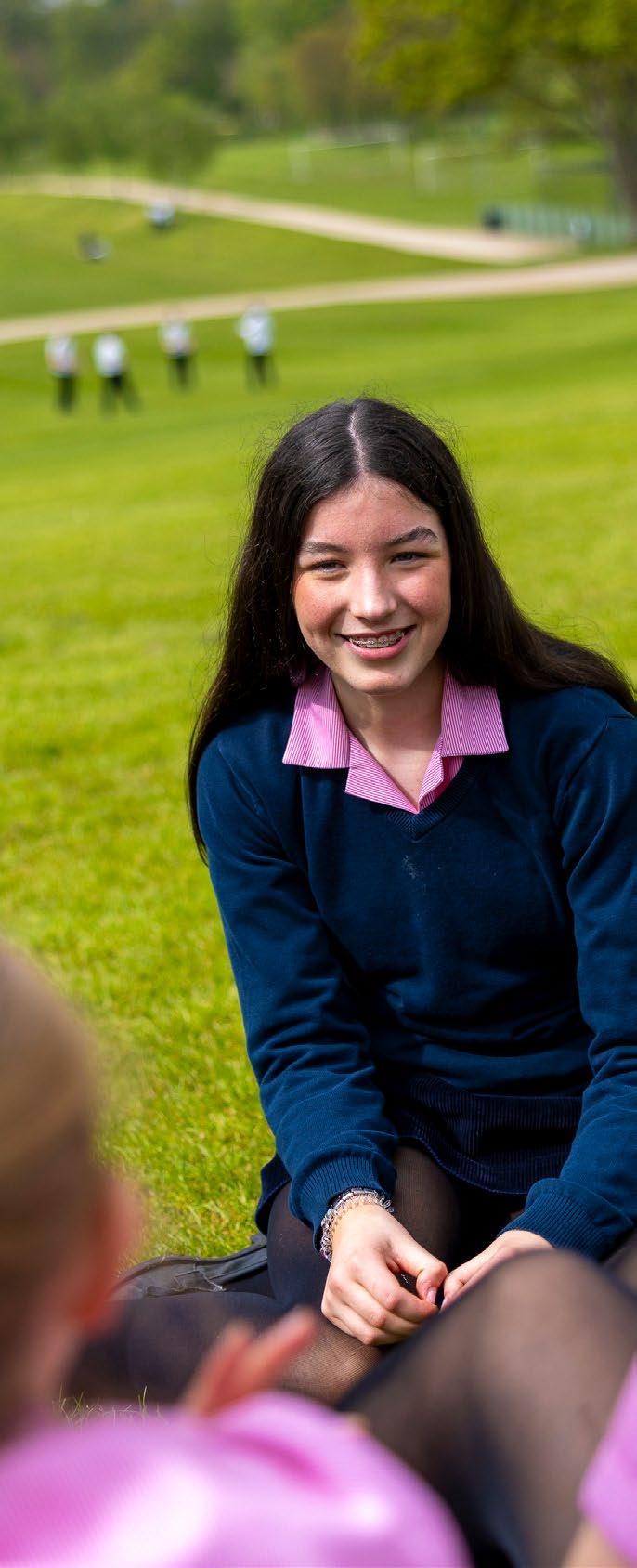
Course specification: AQA 8035
GCSE Geography leads to an understanding of the world and an interest in places. It inspires you to become global citizens by exploring your place in the world, your values and your responsibilities to other people and to the environment. You will appreciate the differences and similarities between people, places and cultures leading to an improved understanding of societies and economies.
How will I be assessed?
The course is linear. Linear means that students will sit all their exams at the end of the course. The course is split into three units:
Unit 1: Living with the Physical Environment (35%)
Written exam: 88 marks (including 3 marks for spelling, punctuation, grammar and specialist terminology (SPGST)
Unit 2: Challenges in the Human Environment (35%)
Written exam: 88 marks (including 3 marks for spelling, punctuation, grammar and specialist terminology (SPGST)
Unit 3: Geographical Applications and Skills (30%)
Written exam: 76 marks (including 6 marks for SPGST). Pre-release resources made available from 15 March in the year of the exam.
Where will it lead to?
GCSE Geography can lead you to study A-level geography and/or Geology. Within the course, you will develop transferable skills which can be used in other courses and many different careers. Some of these include; graphical and cartographical skills; technological skills, including ICT and GIS; interpersonal skills through debate and discussion; literacy and numeracy; problemsolving skills.
Course specification: AQA 8145
History is not simply the study of the past; it is also the study of how the present world was created. It is the story of the world that we live in. Our GCSE History course aims to develop in candidates a broad understanding of how the world we live in today has its roots firmly in the past. Through studying History students are encouraged to analyse and evaluate historical sources and to form their own opinions about the significance of key events, changes and individuals.
How will I be assessed?
Written Exam: 100% (No coursework) Paper 1: Understanding the Modern World. Germany 1890-1945: Democracy and dictatorship. From the Kaiser to Adolf Hitler & Conflict and Tension 1918-1939
Paper 2: Shaping the Nation.
Britain: Power and the People c1170 to the present day. British Depth Studies. Norman England 1066-1170.
Where will it lead to?
You can go on to study A Level, then a History Degree. However, History at GCSE also opens up an avenue to Politics and Law. Employers recognise History as a traditional academic subject which demonstrates to them a competent level of written English. It is one of the eight key A Level subjects which allows access to the Russell Group Universities.
Course specification: EDEXCEL 1MA1
The course content is grouped into the following topic areas:
1. Number, 2. Algebra, 3. Ratio, proportion and rates of change, 4. Geometry and measures, 5. Probability, 6. Statistics
Students should develop knowledge, skills and understanding of the content. They should be able to use their knowledge and understanding to make connections between mathematical concepts and apply them to solve real-life situations. Each paper has a range of question types; some questions will be set in both mathematical and non-mathematical contexts.
How will I be assessed?
There are three written papers, each covering all of the assessment objectives.
Papers can be sat at two levels:
Foundation - Grades 1 - 5 available Higher - Grades 4 - 9 available
80 marks are available on each. Paper 1 is a non-calculator paper and a calculator is allowed for Papers 2 and 3 at both levels. All 3 papers must be sat at the same level which will be decided by the class teacher in consultation with the student and their parents.
Where will it lead to?
A grade 5 or above in Mathematics will be a prerequisite for most sixth forms and future courses or career paths that you may decide to take.
If you are considering taking Mathematics at A-level, a standard of no less than grade 7 at GCSE is recommended.
Course specification: WJEC Eduqas GCSE Music: C660QS
How will I be assessed?
Paper 1 – Performance (30%)
Pupils are encouraged to work on their performance skills, developing their creative thinking, aesthetic sensitivity, critical awareness, self-confidence, selfmotivation and their own musical interests. Assessment is based on the performance of two pieces. Both can be as part of an ensemble/group, or if preferred, one of the two can be a solo performance.
Paper 2 – Composition (30%)
Composing is the process of creating music. Pupils will investigate a range of techniques and resources for developing and manipulating musical ideas, and turning them into completed pieces of music. They will produce two compositions for their final assessment, one in response to a brief set by the exam board, and the other in a style chosen by the student. Pupils can use traditional musical notation or software such as Garageband.
Paper 3 – Listening and Appraising (40%)
Pupils study a range of music across a variety of styles and genres: musical forms and devices, ensemble music, film music and pop music. A written paper is taken at the end of the course and is assessed externally.
Where will it lead to?
As well as being a prerequisite for most A Level Music and Music Technology courses, a GCSE in Music demonstrates a number of valuable transferable skills which are valued highly by higher education institutions and employers. Self-discipline, creativity, critical thinking, ability to communicate, collaborate and think “outside the box” are all needed to succeed, and these are recognised as being important to enable young people to respond with confidence to the demands of undergraduate study and the world of work.
Course specification: Pearson Edexcel
GCSE French and GCSE Spanish have a Foundation Tier (grades 1–5) and a Higher Tier (grades 4–9) with four papers each. Pupils must take all four papers at the same tier. The French and Spanish GCSEs cover three distinct themes. Pupils are expected to understand and provide information and opinions about these themes relating to their own experiences and those of other people, including people in countries/communities where French or Spanish is spoken.
Language learning develops skills, which are useful in a wide range of future careers. These skills include the ability to communicate clearly, being confident about speaking in public and using problem-solving strategies. From 2024, pupils will be expected to transcribe in the target language and use their phonic awareness of French / Spanish to read short unseen sentences aloud. Learning a new language adds an international dimension to a pupil’s range of GCSE subjects, which is something many future employers and higher education providers look for.
Examination:
Pupils study all of the following themes on which the assessments are based.
Theme 1: People and Lifestyle Theme 2: Popular Culture
Theme 3: Communication and the world around us
French
Course specification: AQA 8652 (new specification for first teaching 2024)
How will I be assessed?
Wherever possible, we prefer to commence teaching in year 9 in order to be able to cover each theme in depth.
Paper 1 – Listening – (25%)
Paper 2 – Speaking – (25%)
Paper 3 – Reading – (25%)
Paper 4 – Writing – (25%)
Course specification: Pearson Edexcel
How will I be assessed?
Wherever possible, we prefer to commence teaching in year 9 to be able to cover each theme in depth.
Paper 1 – Listening – (25%)
Paper 2 – Speaking – (25%)
Paper 3 – Reading – (25%)
Paper 4 – Writing – (25%)
Where will it lead to?
A Level French & Spanish. Languages are highly regarded and more and more universities are advising that a good grade is viewed favourably, even at GCSE level, whatever the degree course studied. Nowadays languages are often the key to future employability in today’s world of international trade. The transferable skills gained in language learning are valuable in all employment sectors and graduate linguists have one of the highest employment rates. Proficiency in a language provides greater opportunities in the UK, Europe and beyond.
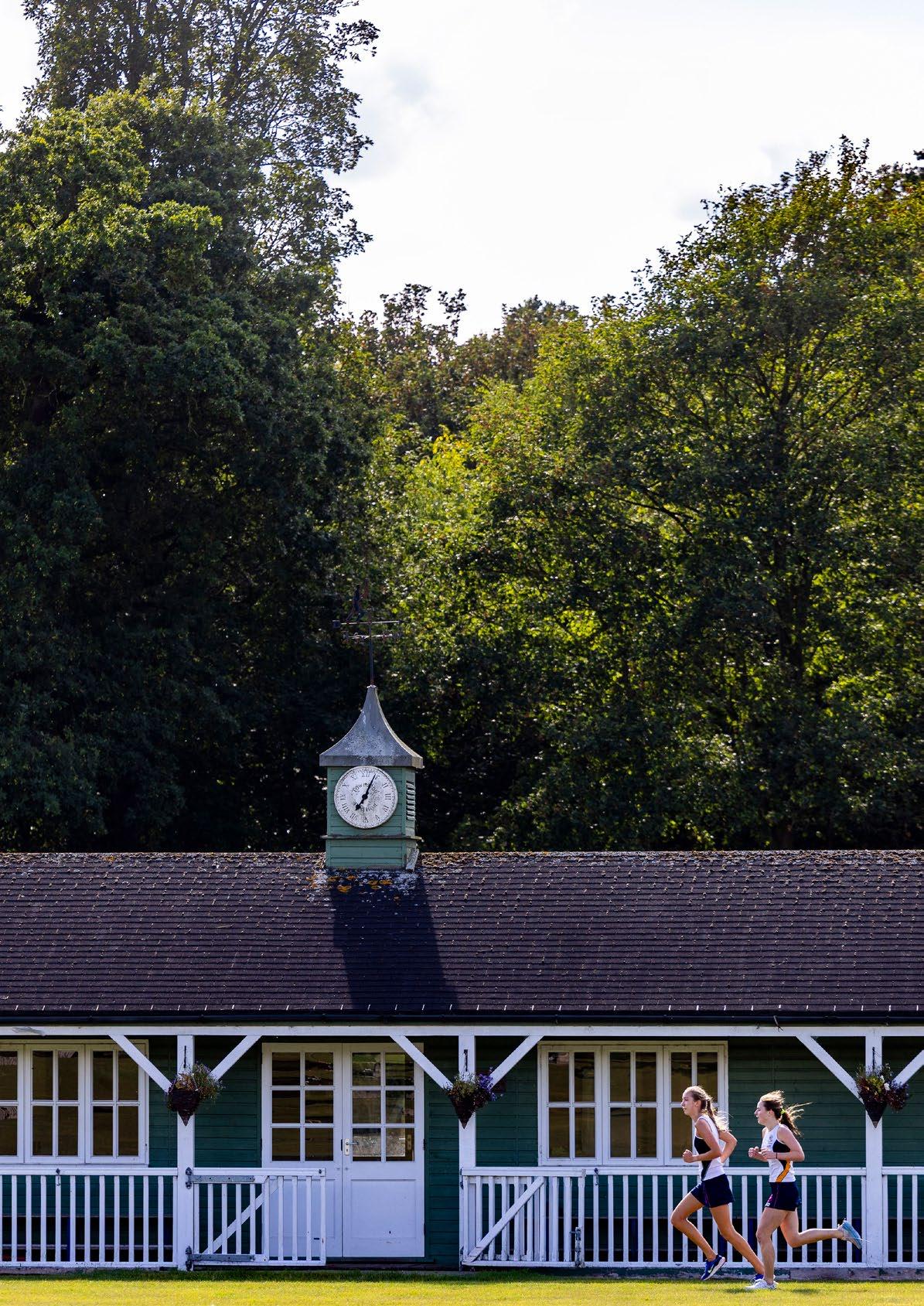
Course specification: AQA 8582
The AQA Physical Education specification takes a multidisciplinary approach, encouraging the development of different methods of enquiry drawn from a wide range of disciplines, with the focal point being the active participant. The specification is based on the interaction between the theory and practice of Physical Education.
The course suits the proficient practical performer, therefore the ability to perform, officiate, and coach, along with a very good knowledge of the rules/laws in a range of sports, is also an advantage. You should be a proactive participant in sports in school and outside of school time.
How will I be assessed?
The course is comprised of two written assessments and an assessment of the individual’s practical performance in sport.
Paper 1 - The human body and movement in physical activity and sport (78 marks = 30%)
Paper 2 - Socio-cultural influences and well-being in physical activity and sport (78 marks = 30%)
Practical Assessment:
The individual will be assessed on their performance in 3 sports and activities (team and individual) and on an internal controlled written assessment on analysis of performance. (100 marks = 40%)
Briefly, the following elements will be learnt:
Applied Anatomy and Physiology, Movement Analysis, Physical Training, Use of Data, Sports Psychology, Sociocultural influences, Health, fitness and well-being
Where will it lead to?
BTEC/A Level in P.E. Successful completion of the course could lead to: Sports Studies/Science, Physical Education Teaching / Coaching and Sports Development. Additionally, the course would prepare students for work in Sports and Recreation Management, Fitness Industry, Sports Rehabilitation and Physiotherapy.
Course specification: AQA 8062
Religious Studies is a popular and challenging subject. Students will address questions about belief, values, meaning, purpose and truth, enabling them to develop their attitudes towards religious, philosophical and ethical issues. By studying the subject, pupils will develop analytical and critical thinking skills, the ability to work with abstract ideas, leadership and research skills. The staff team are highly experienced and foster a love of their subject through the delivery of engaging lessons with a real emphasis on debate and discussion. Students will study the beliefs, teachings and practices of Christianity and Islam. They will also engage with key philosophical and ethical topics.
Theme A: Relationships and families.
Theme B: Religion and life.
Theme D: Religion, peace and conflict.
Theme E: Religion, crime and punishment.
How will I be assessed?
100% Written Exam
Where will it lead to?
Many professions require the ability to think critically. Policing and Medical professions need a robust knowledge of ethics, something which this course will help you with.
Progression into A-Level courses such as Philosophy, R.S., Critical Thinking and English Literature with further progression into a myriad of university degrees. The course allows for a solid foundation in how to question and think critically about big issues and their impact on society and the individual.
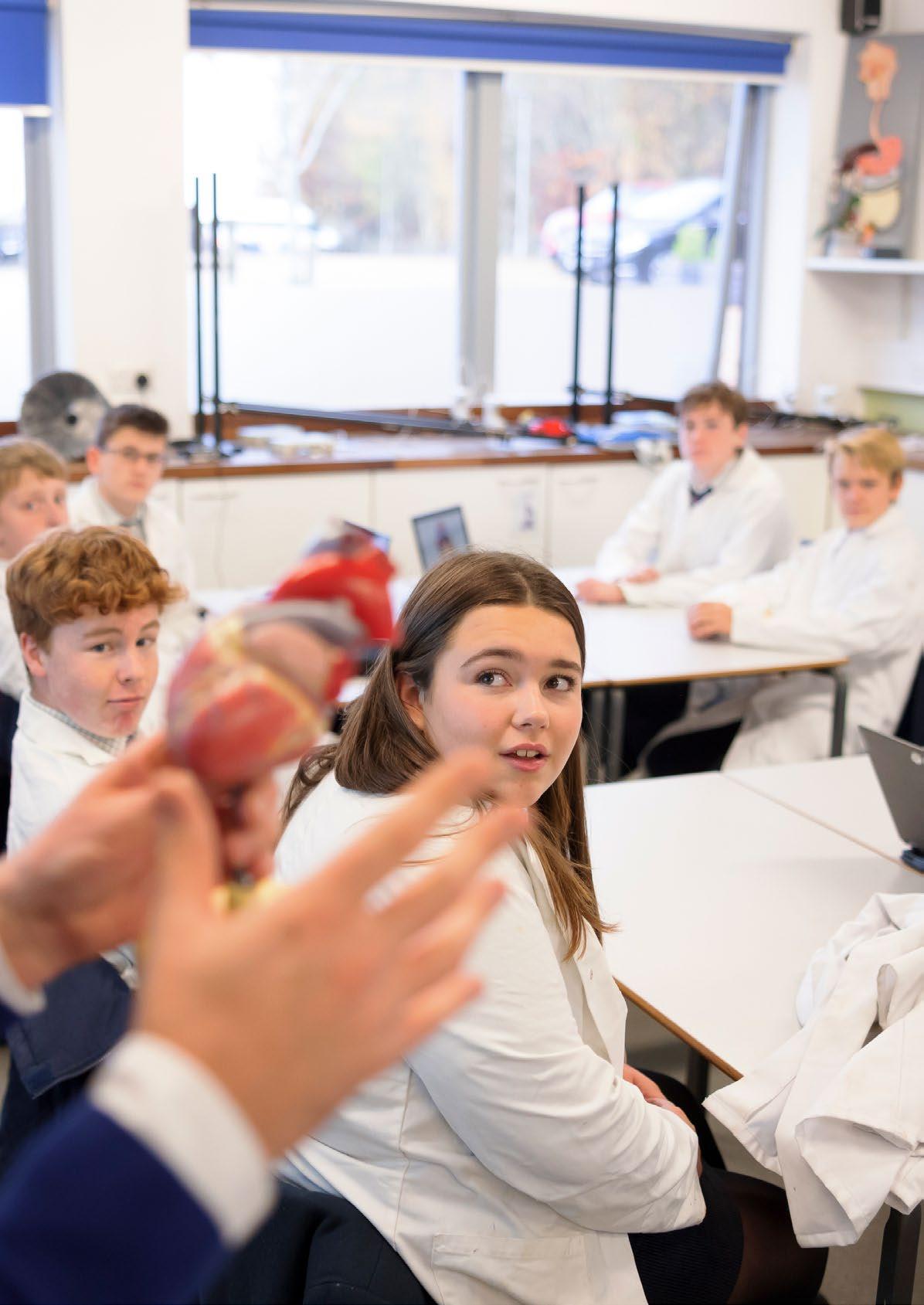
Course specification:
Separate Sciences – EDEXCEL 1BI0, 1CH0, 1PH0
Combined Science – EDEXCEL 1SC0
All students will follow the EDEXCEL (9-1) Combined Science for 2 GCSEs unless they choose Separate Sciences where they will achieve 3 GCSEs, one in Biology, one in Chemistry and one in Physics.
Separate Sciences can be demanding and will add additional lessons of science to the pupils’ timetable to work towards the third GCSE. It is therefore recommended only for pupils who are both prepared for the additional workload and enjoy science. A-levels in science are entirely accessible through the Combined Sciences route however the Separate Sciences route goes into greater depth in all three sciences, enabling students to bridge the gap between GCSE and A-level study more effectively.
How will I be assessed?
Combined Science
6 exam papers, each 1hr 10min (60 marks) in duration (7hrs total).
Separate Science
6 exam papers, each 1hr 45min (100 marks) in duration (10.5hrs total).
Practical skills will be assessed through the written papers, accounting for 15% of the available marks.
The exams will consist of a mixture of question styles, including multiple-choice, short answer, calculations and extended response questions.
Key differences between Combined and Separate Sciences
The Biology, Chemistry and Physics topics are made up of key topics that all students (both those on the Combined Sciences and Separate Sciences route) will study. Those studying Separate Sciences will study additional areas within each topic. To see the full specification for GCSE Combined and Separate Sciences, please visit the EDEXCEL website at qualifications.pearson.com
Where will it lead to?
Separate Sciences are a fantastic way for a highly motivated and enquiring Science student to expand their knowledge of the three sciences. Any student considering a career in the medical, engineering, veterinary or scientific profession is encouraged to have strong science qualifications for entry into these fields. More information on the science qualifications is available from the Science department.
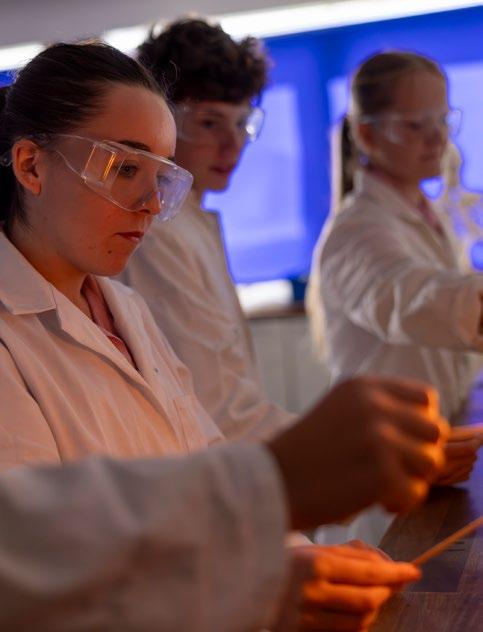
Course specification: OCR J174
Students should demonstrate an expressive, decorative or functional response through the use of fabrics dyes and fibres. Candidates explore a range of techniques and processes. Students are required to work in one or more area/s of Textile Design such as: Constructed textiles; Digital textiles; dyed fabrics; printed fabrics; fashion design; installed textiles; soft furnishings; stitched and/ or embellished textiles.
Students will have the benefit of trips to UK galleries, museums and places of interest as part of the curriculum. In Year 10 there is an overseas trip, for example to Barcelona or Paris, and a trip to the Harrogate Knit and Stitch Fair. In Year 11 the pupils visit London to do the primary research for component two, the set task.
How will I be assessed?
Students are required to complete two mandatory units of work:
Unit 1 - A114 Portfolio – a portfolio of coursework produced over 15 -18 weeks and developed from a specific starting point. This body of work forms 60% of the total marks and should show exploration, research and demonstrate the use of a range of techniques and skills.
Unit 2 - A124 - Set task – which comprises 6 weeks of preparation and a 10-hour exam and forms 40% of the total marks. Students select one question from an earlyrelease exam paper to which they produce a personal response. For more details see Mrs Pearson in the Art Dept.
There is an exam in the Summer term for Year 10 and a mock exam in Michaelmas term for Year 11. The two GCSE units are internally marked and externally moderated by the Examining Board.
The study of Textiles can help you develop transferable skills that you can take to any career or job. It will help your research skills, the ability to work independently and the aptitude to share ideas visually and verbally.
Post 16 - You could go on to take a higher qualification in Textiles and Design such as A Level or BTEC.
Post 18 - Ultimately you may wish to go on to careers in such fields as fashion design, fashion buying or merchandising, textile design and/or technologies, surface design, interior design, applied arts or education.
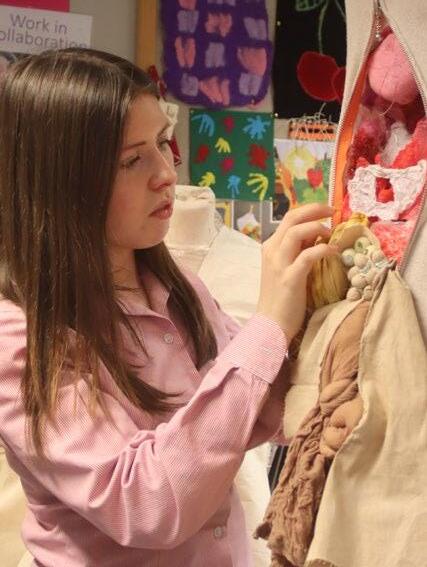
Cundall Manor pupils go on to achieve further success as they progress to sixth form, college or the workplace. We work closely with pupils and parents to support each individual in securing the next step that best suits their aspirations and strengths.
Many of our pupils traditionally move on to study A Levels at local independent schools and leading boarding schools across the country, while others pursue technical or vocational qualifications. In every case, guidance is tailored to ensure each pupil finds the right pathway.
The Senior Leadership Team supports pupils throughout the decision-making process, working closely with sixth form providers and encouraging attendance at open days. Pupils receive guidance at every stage of the application process, including interview preparation where appropriate.
We value the strong connections we maintain with our former pupils and are proud that many stay in touch as they progress through further education and into fulfilling careers. Our alumni continue to contribute to school life through career fairs and involvement in our scholarship programme.
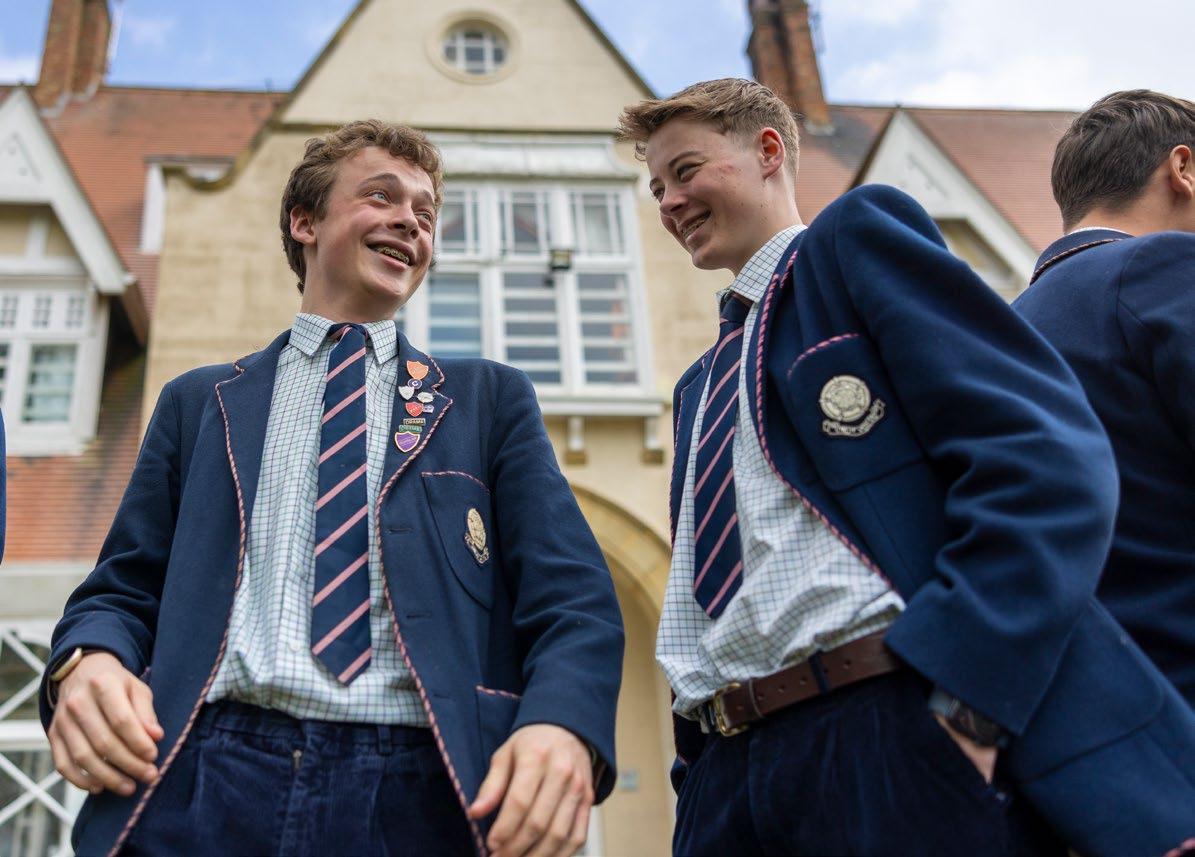
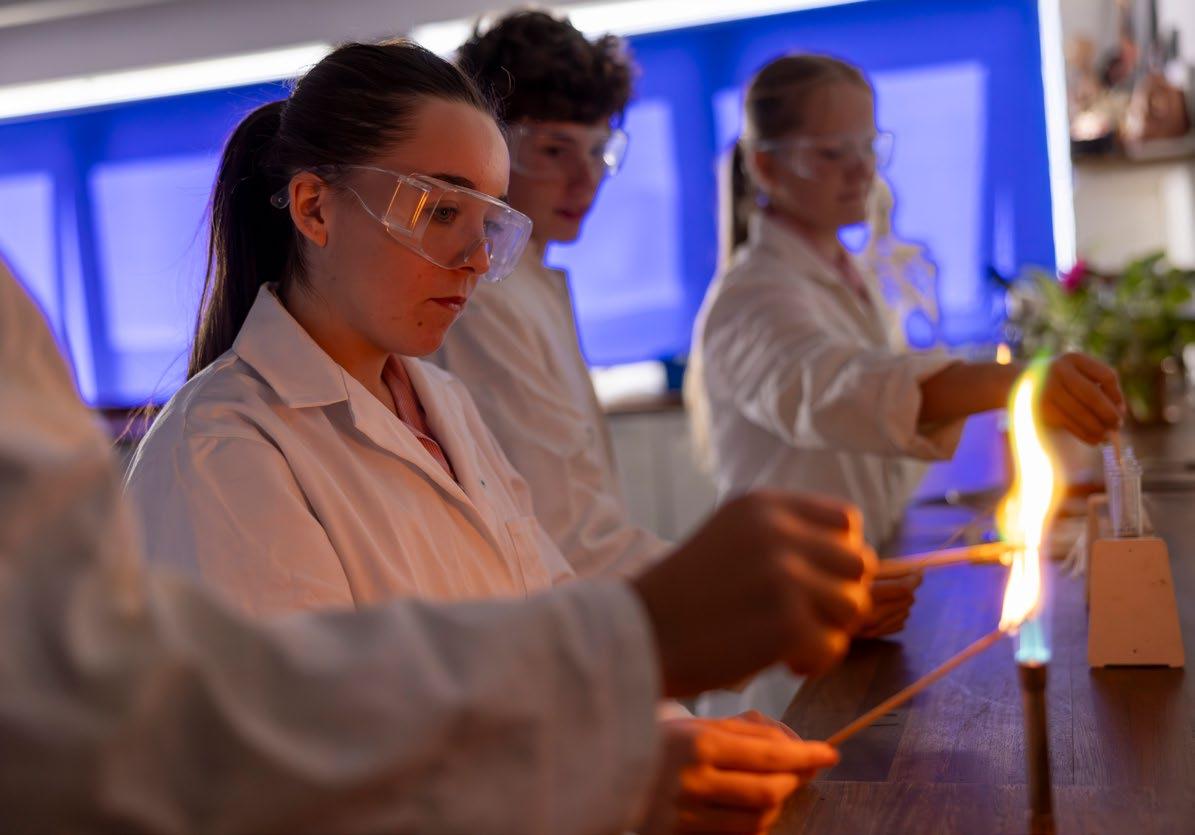
Cundall Manor School creates many opportunities for pupils to take part in work experiences within a variety of careers. Senior School pupils are invited to attend our annual Careers Fair held in the main hall where exhibitors ranging from the medical industry to the armed forces, financial services, creative arts to construction, provide guidance and share experience about finding the path to a fulfilling career. Year 10 pupils also undertake a work experience week giving them the opportunity to meet new people and find out what working life is really like. Cundall Manor utilises the platform UniFrog which allows students to conduct research into future career paths, explore opportunities for post-16 education and help them to track essential skills for their CVS.
More stops available upon request. What3words offer precise locations.
Risplith objective.seriously.passively
Northallerton sped.adopters.powerful
Sandhutton unusable.save.directive
Busby Stoop historic.calendars.carriage
Ripon (Booths Car Park) officers.engaging.squabbles
Sharow firelight.fittingly.climber
Wormald Green crunches.embodied.patio
Ripley masses.cigar.stopwatch
Curious Cow (Harrogate) paves.slung.award
2024-2025 Bus Runs
Hutton Rudby uncle.line.exam
The Cleveland Tontine roosts.shield.jugs
Osmotherly brass.teacher. regrowth
Knayton mimes.paintings .guideline

Rabbit Hill Industrial Park nurtures.afford.kite
The Bridge Inn (Walshford) bootleg.sifts.poets
Boston Spa marker.thickens.secret
Boston Spa
All children using our school bus service arrive at school for 8.30am and catch the bus home at 5pm. All our pupils from Reception upwards may request a place on the school bus, with younger pupils requiring a car seat to be provided by parents.
Black Horse Pub (Swainby) backs.modifies. passenger Kirby in Cleveland shatters.taller.sample
Carlton in Cleveland daylight.pursue.track
Sessay today.cook.crunched Bagby september.bumps.linked
Easingwold flinch.digests.junction
Huby taster.harmlessly.chestnuts
Children are expected to be well behaved on our school buses and listen to the bus driver at all times. Please note that priority for places on the bus is given to termly users.
For more information about routes, times and availability, please email bus@cundallmanor.org.uk
an
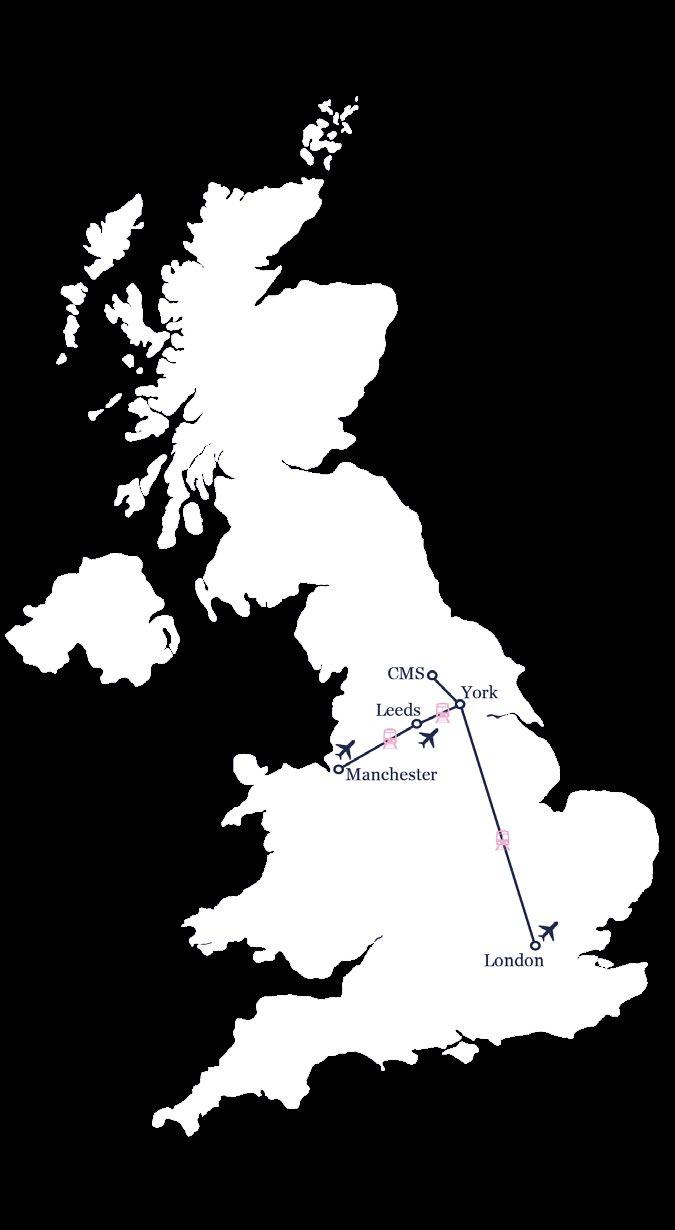
Cundall is easily accessible via the A19, A1 and the M1.
Leeds Bradford Airport is 50 minutes away by car and Manchester Airport is 2 hours away by car.
Regular trains run from London to Thirsk in 2hrs. Trains also connect Edinburgh, Leeds and Manchester to York. The school can organise transport from York and Thirsk stations to the school.
The school day begins at 8:30am and academic lessons finish at 4:10pm. Wrap-around care is provided during term time from 7.30am with breakfast club. Enrichment takes part during term time from 4:10pm – 5pm. From 5pm there is also an after-school provision to support prep/homework requirements till 6pm.
If your child requires medication at school, please contact your child’s teacher to request a medication administration form.
Our school kitchen has a Nut Free policy and all our meals are homemade on-site. If your child has any food allergies, please notify our school nurse, Mrs Lee and complete a Care Plan form for your child.
Accidents are recorded digitally via our Engage portal. Trained first aiders will treat your child and complete an accident record including details of any treatment which is then sent to parents through Engage. In emergency situations, we will contact you and the relevant services immediately.
Please feel free to confidentially discuss any concerns you have regarding your child’s health with our School Nurse, Mrs Lee. vickylee@cundallmanor.org.uk 01423 360 920
If your child is asthmatic, we will need a spare inhaler to be held at school together with a care plan form - Mrs Lee will be in touch with you regarding this.
Any child who has suffered from a fever, vomiting or diarrhoea should be kept at home for 48 hours after the symptoms cease, to avoid infecting others.
Fresh drinking water is available at all times, and healthy snacks are provided in the morning. Our lunchtime menus are published in the weekly school newsletter and offer a wide variety of well-balanced options. Pupils enjoy healthy, freshly prepared meals prepared by our chefs, including hot and cold main courses, a fresh salad bar, a fruit station and a selection of puddings.
As part of the wider school, we have a Learning Support Department that works closely with the key workers and class teachers to help ensure early identification of any support that may be required.
It is a legal requirement for us to keep a daily attendance register. If your child is unwell, or absent for any non-medical reason, please notify the School Office between 8.30am–9.00am.
If your child is in Years 3-6 please can you as a parent inform the School Office that they have arrived, so we can update the register. Permission for your child to be absent from school during school hours for a non-medical reason must be requested in advance via email: hmpa@cundallmanor.org.uk
We have an excellent provision for car parking but please take care when dropping off and collecting your child. We have policies and procedures in place for all eventualities. Please inform our staff if you think you will be late.
For pupils in Year 3 and above, a supervised prep session is held each evening from 5.00–6.00pm in the Senior School. This provision is inclusive of fees. In the event of a family emergency, we will ensure your child is safely looked after until they can be collected.
All children should arrive and depart from school in their school uniform and blazer. School uniforms must be kept in good repair. If you need to purchase a school uniform, please visit the Cundall Manor School online shop at www.cundallmanorschool.com/shop for a full list of items. The school also features on www.grownoutofit.co.uk for pre-loved uniforms.
Please note that mobile phones are not allowed in school.
Chromebooks are required for pupils in Year 5 and upwards. In order to integrate IT into the everyday learning for children it is much more beneficial for them to use the same device each day.
Please do not allow your child to bring valuables to school. All watches must be named on the back with your child’s name. Pupils’ own laptop/ Chromebook devices are not covered by school insurance. You are advised to add these to your own insurance policy.
The school has a large number of policies to guide its educational and care procedures. Copies of these policies are available to view on the school website or can be supplied upon application to the school office.
The Business Office is happy to assist with any queries regarding School Fees or funding requirements.
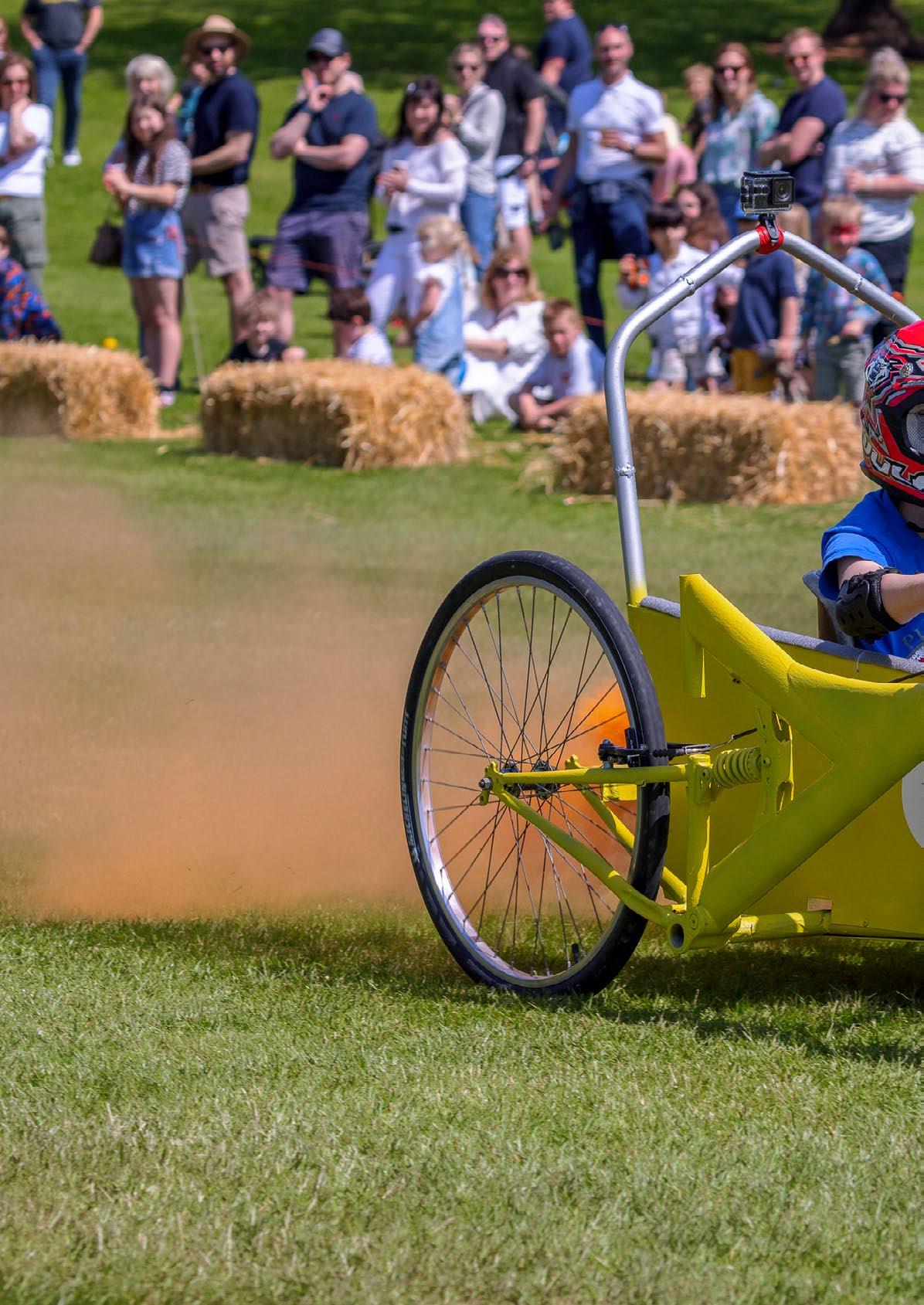
“There’s an energy about the school, a huge sense of fun, of adventure, combined with truly superb teaching and a culture that is about caring.”
PARENT OF CUNDALL MANOR PUPIL, 2023
